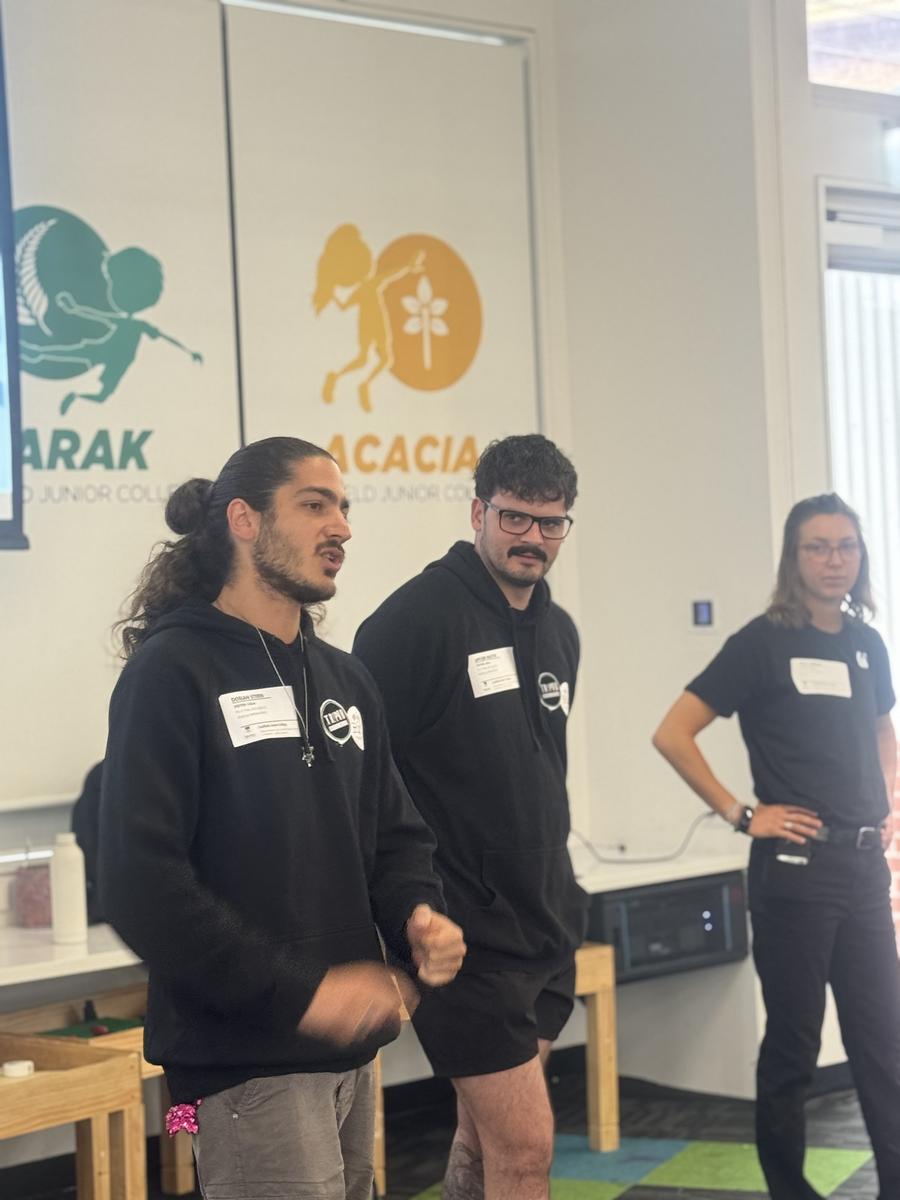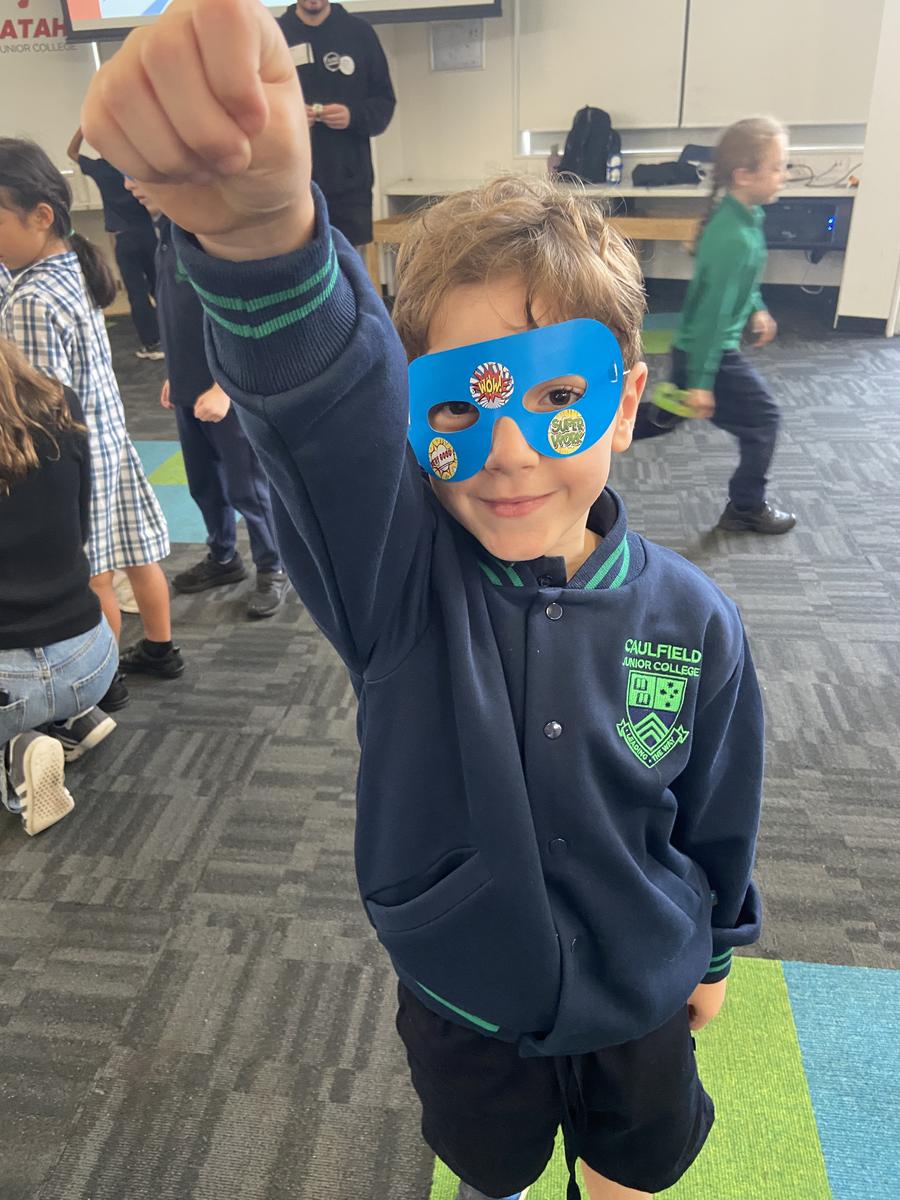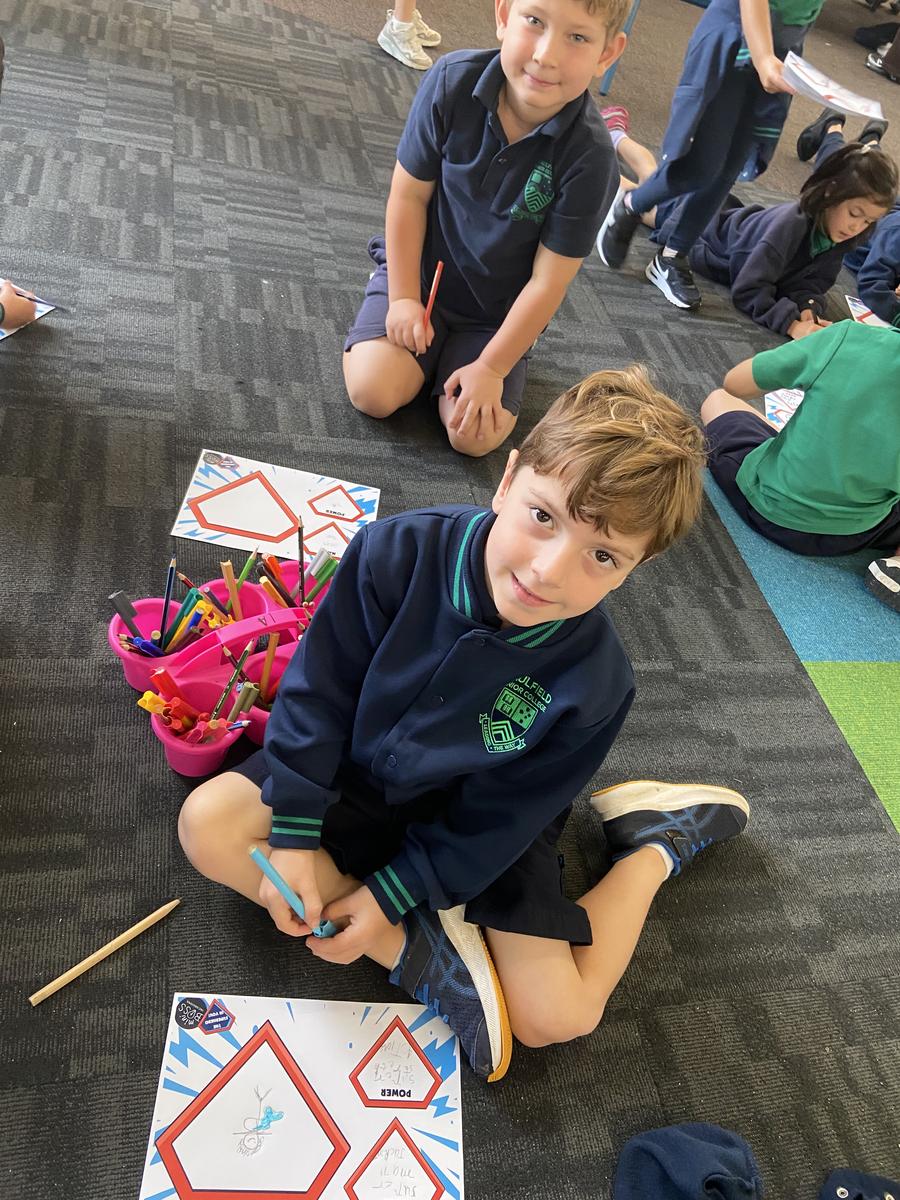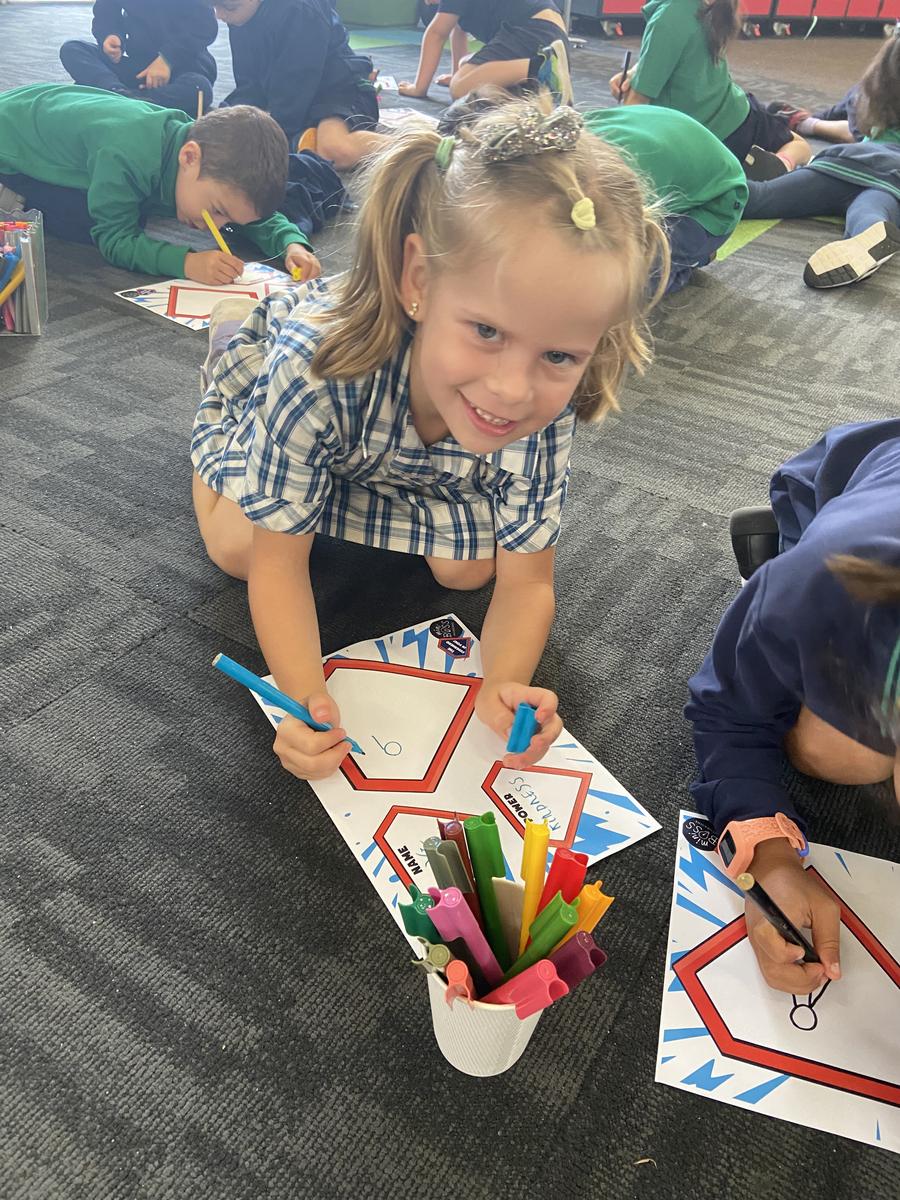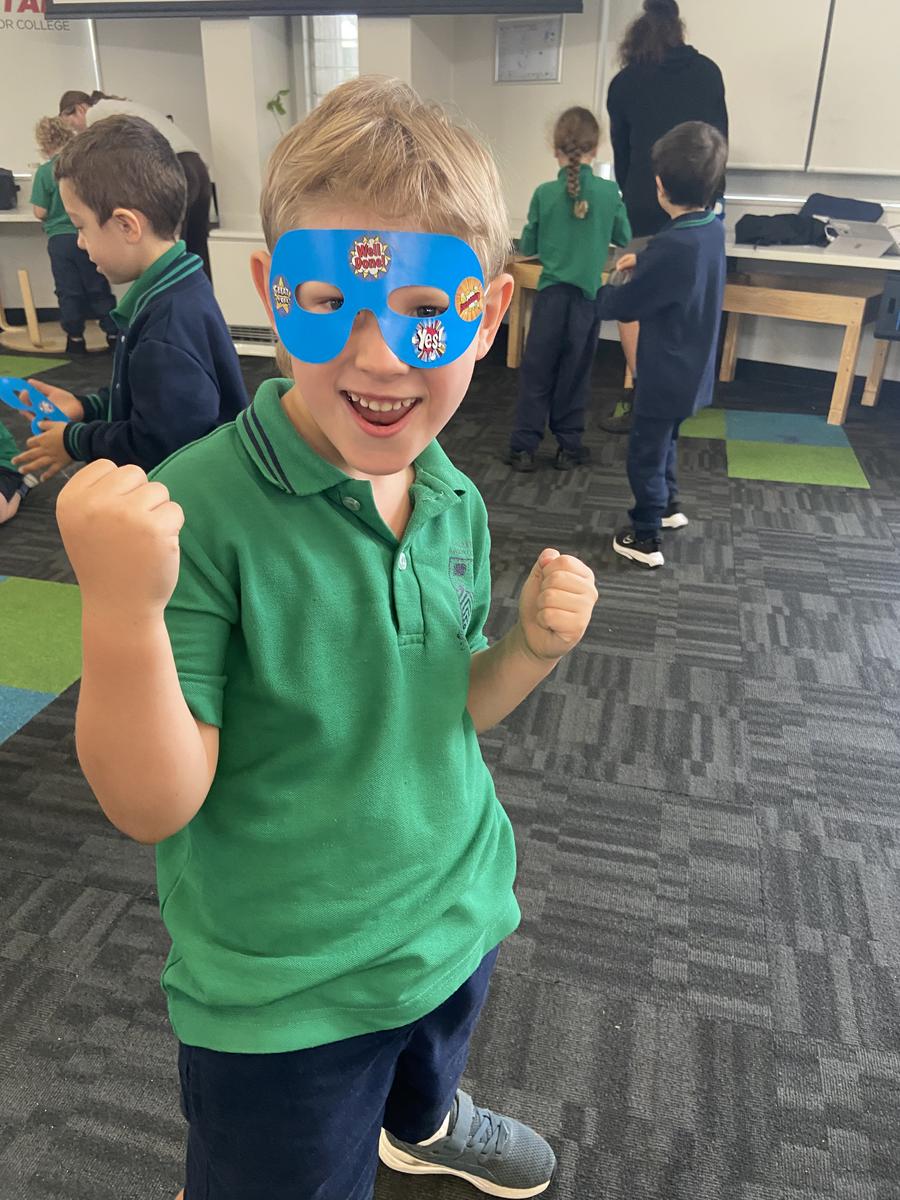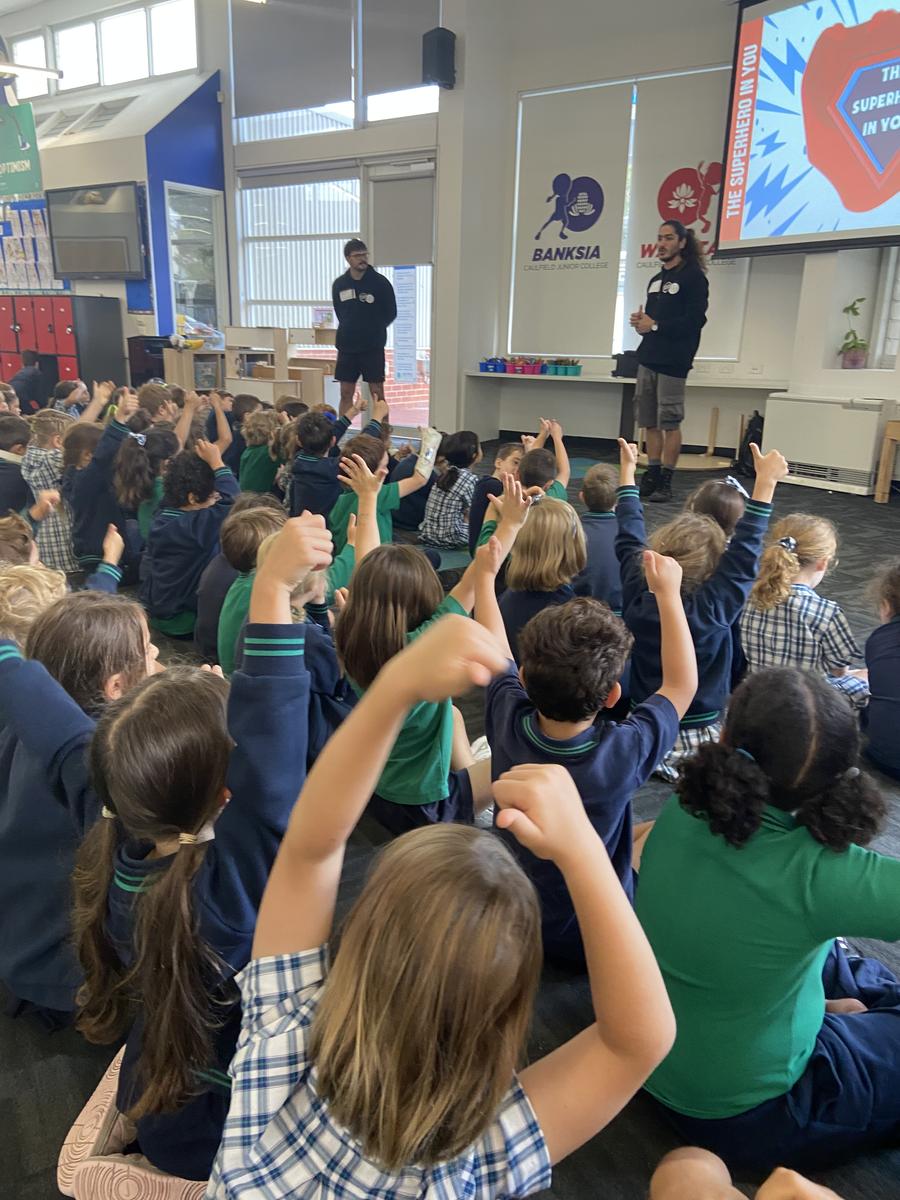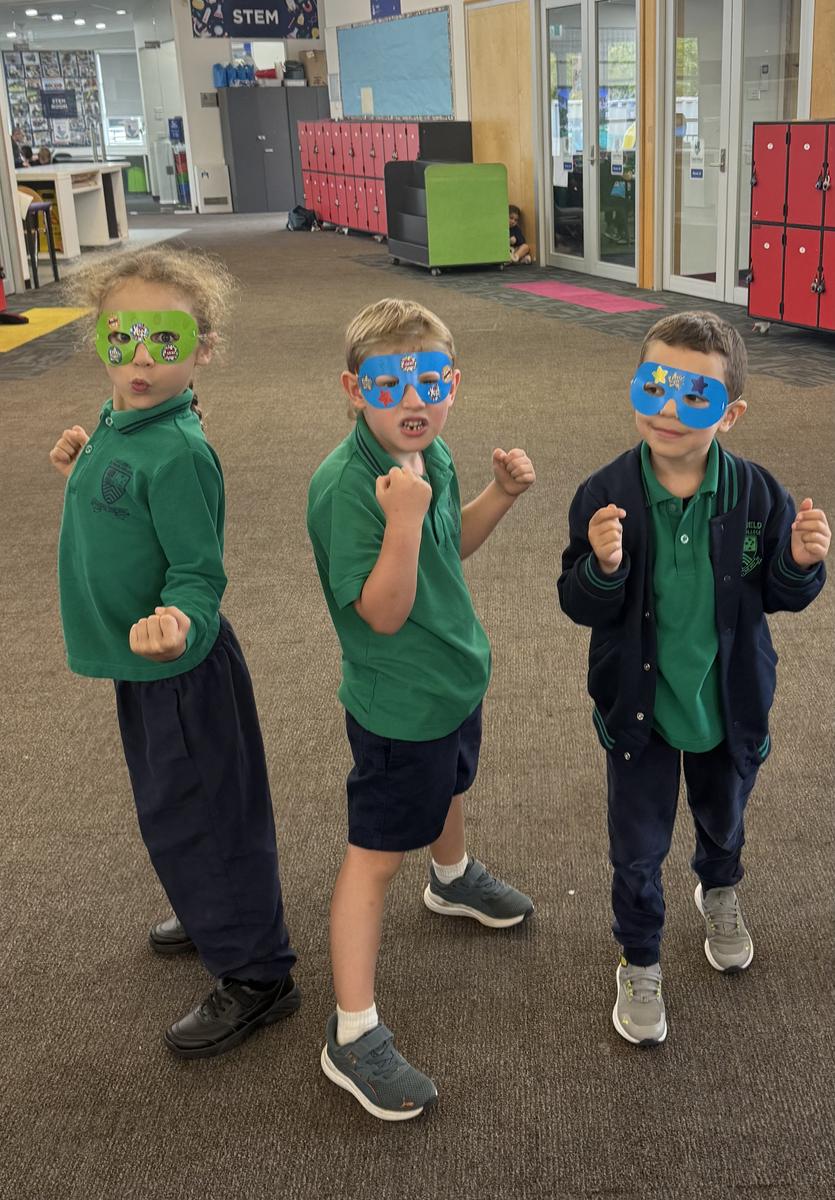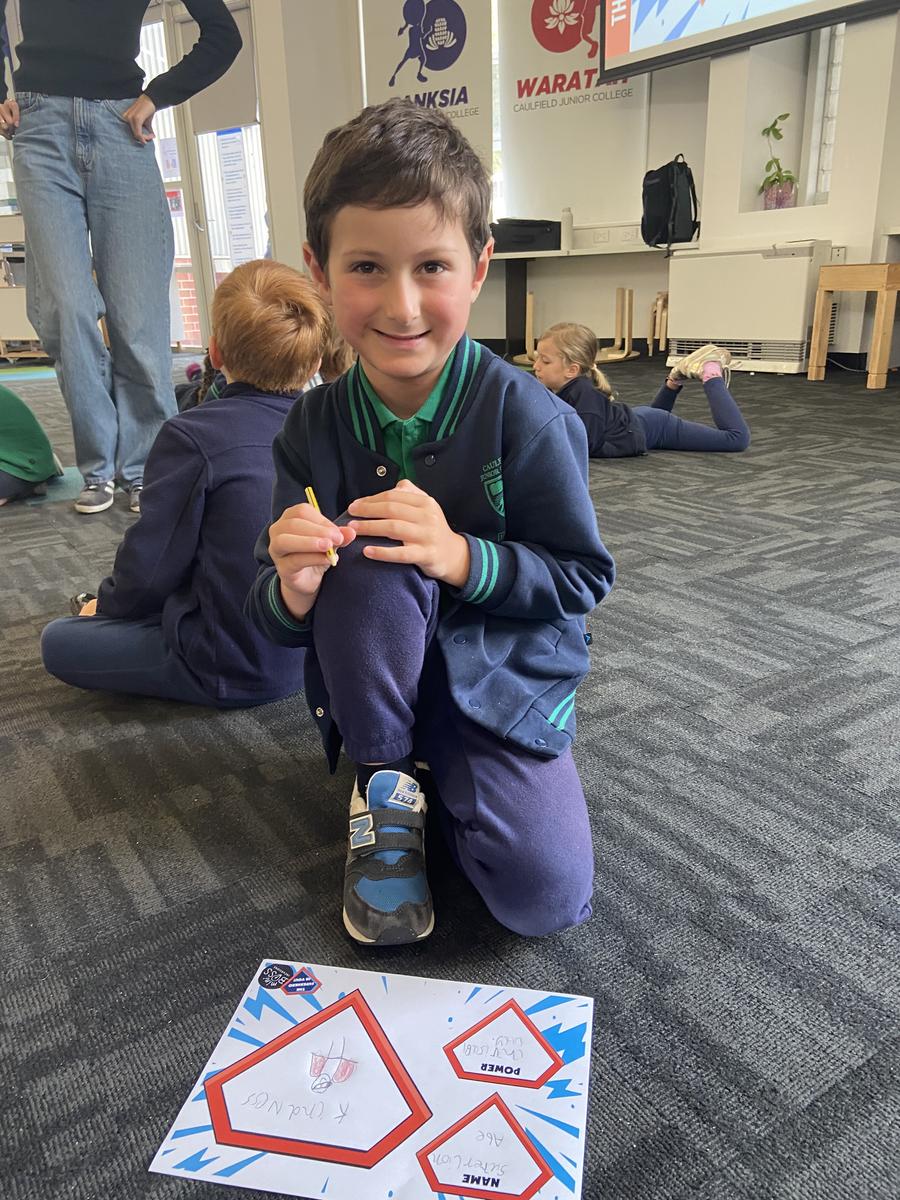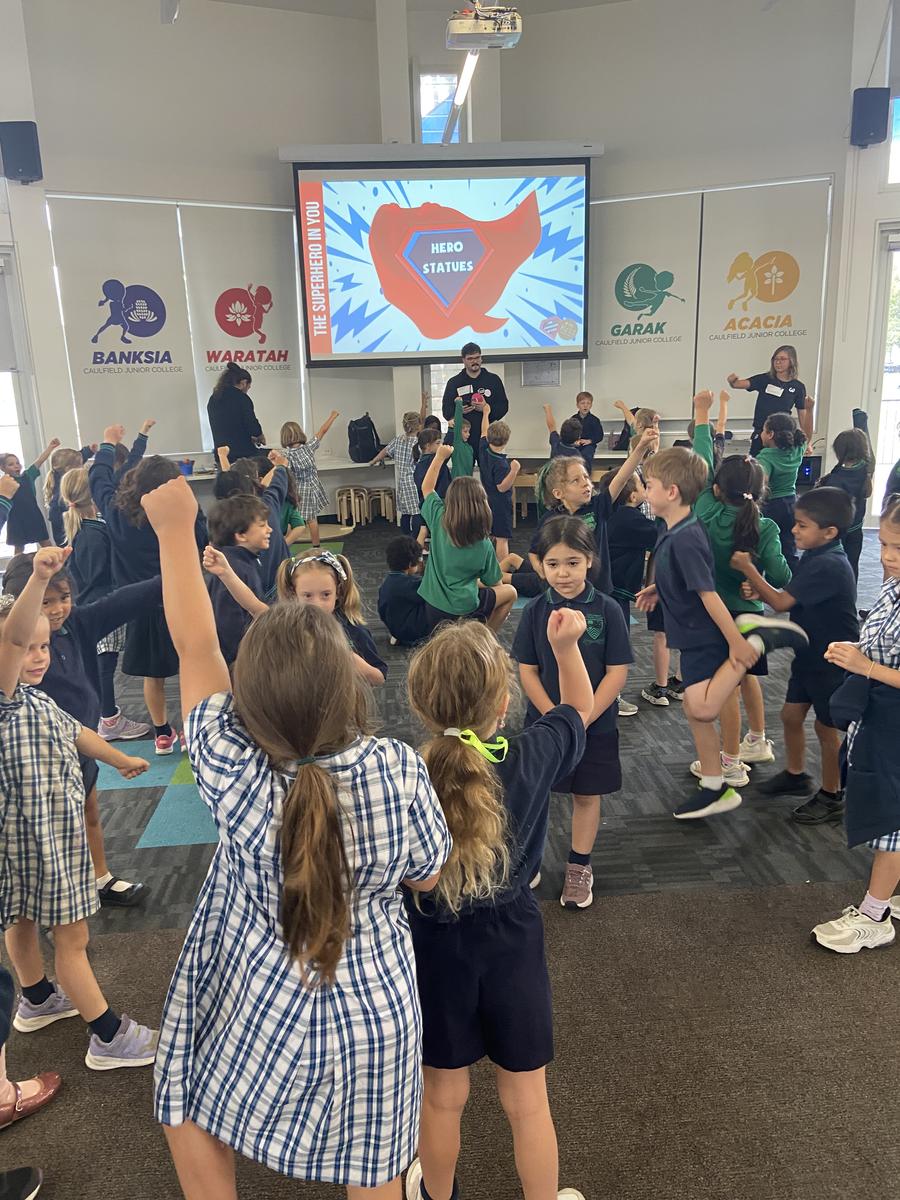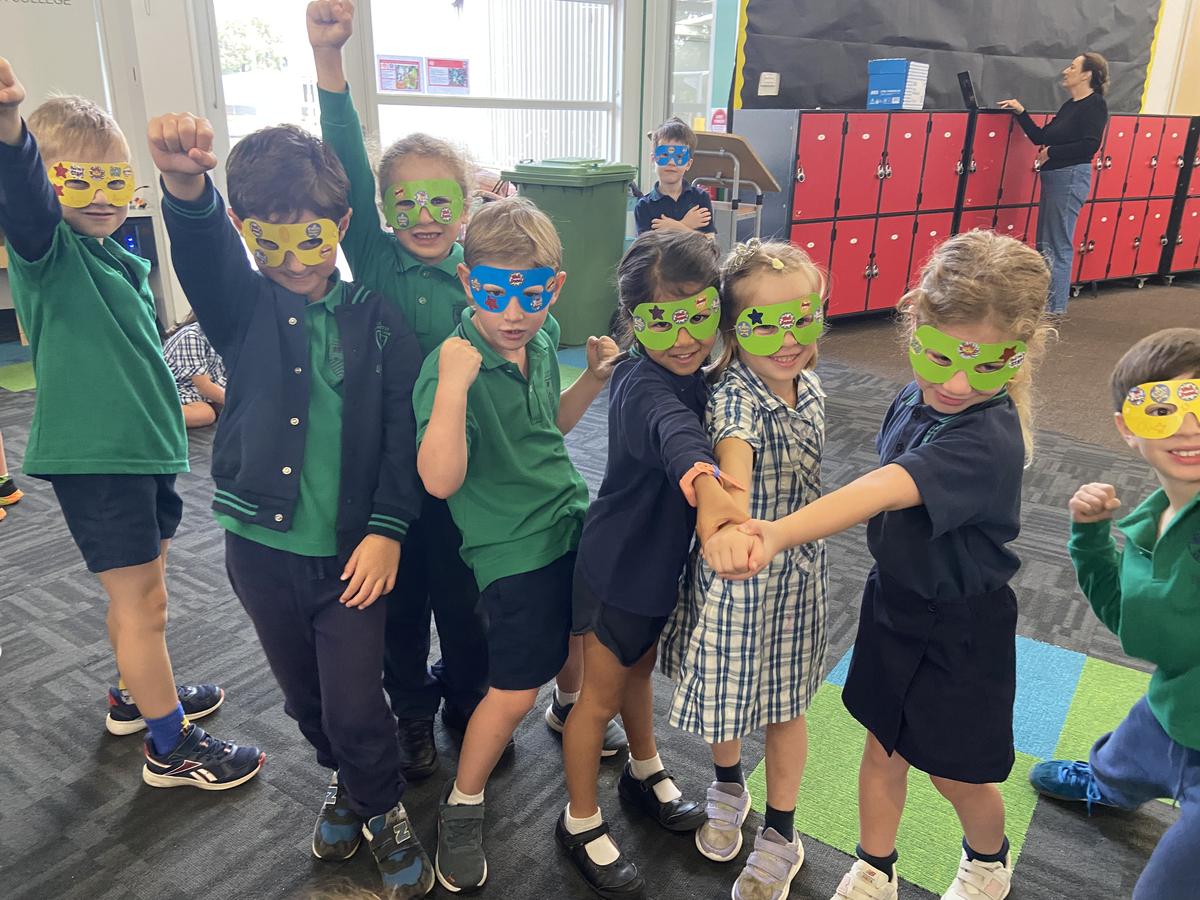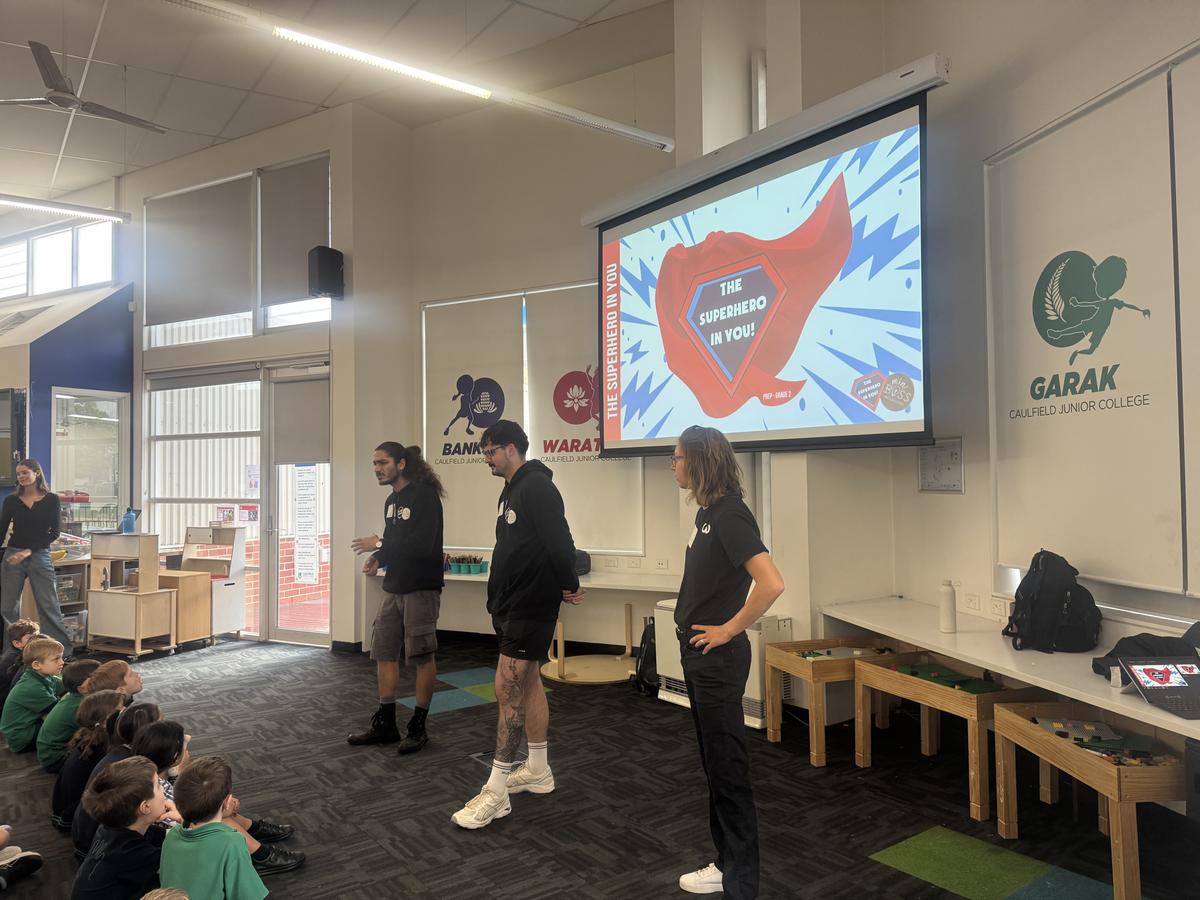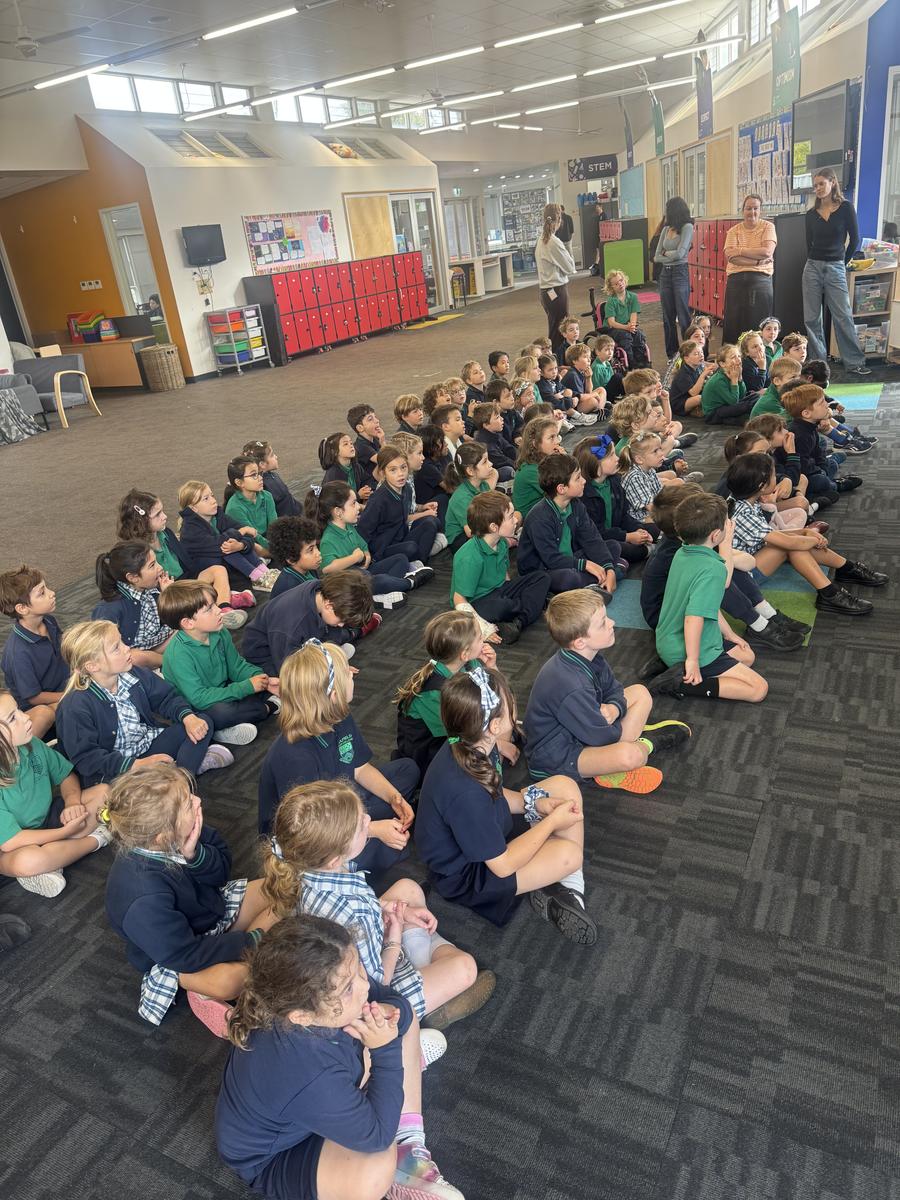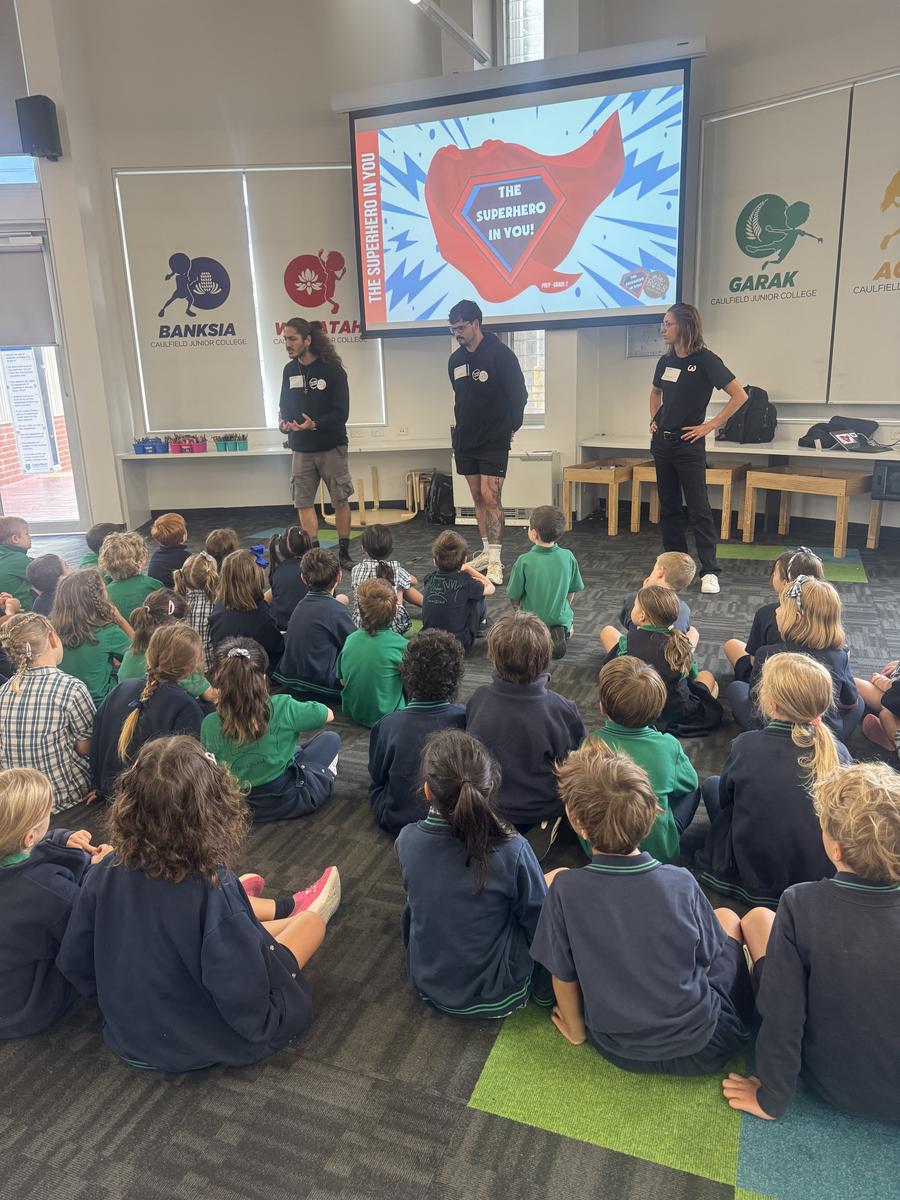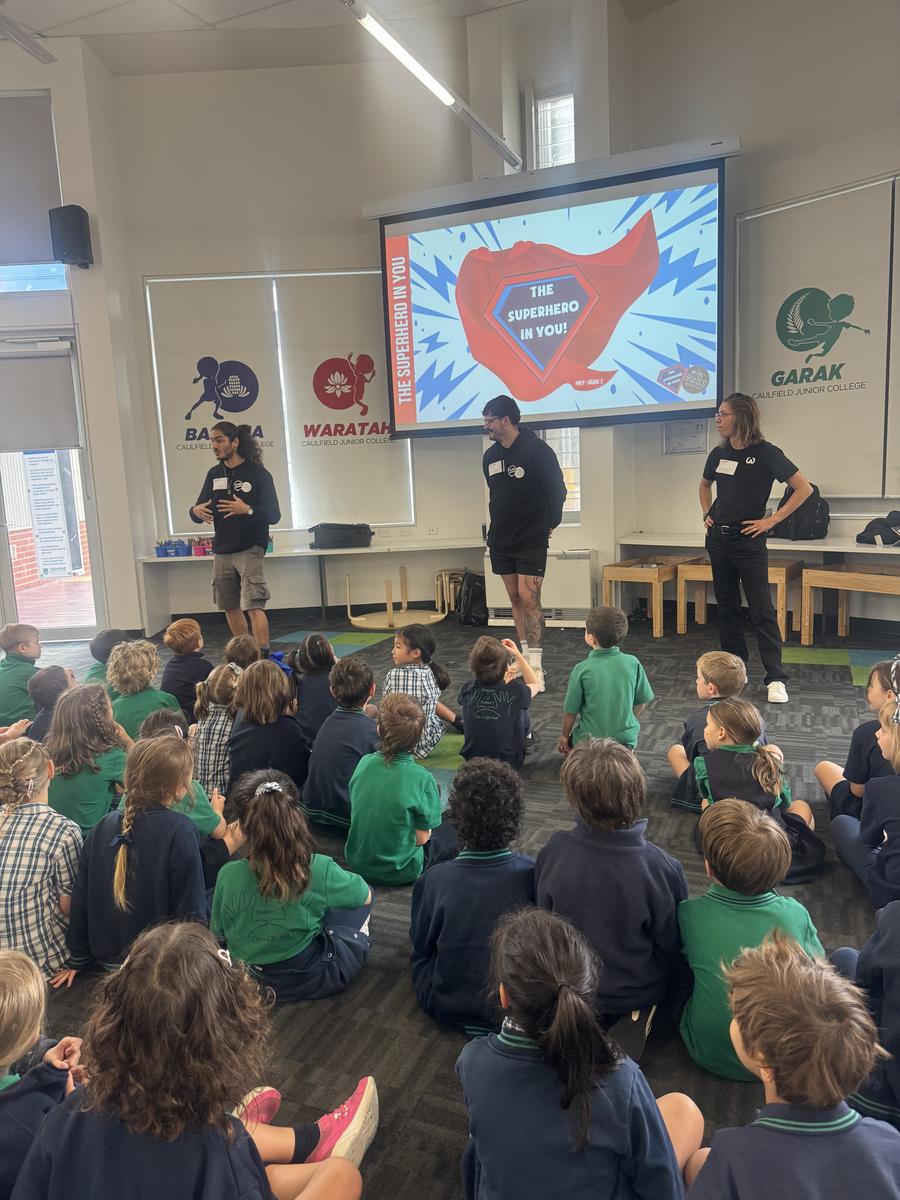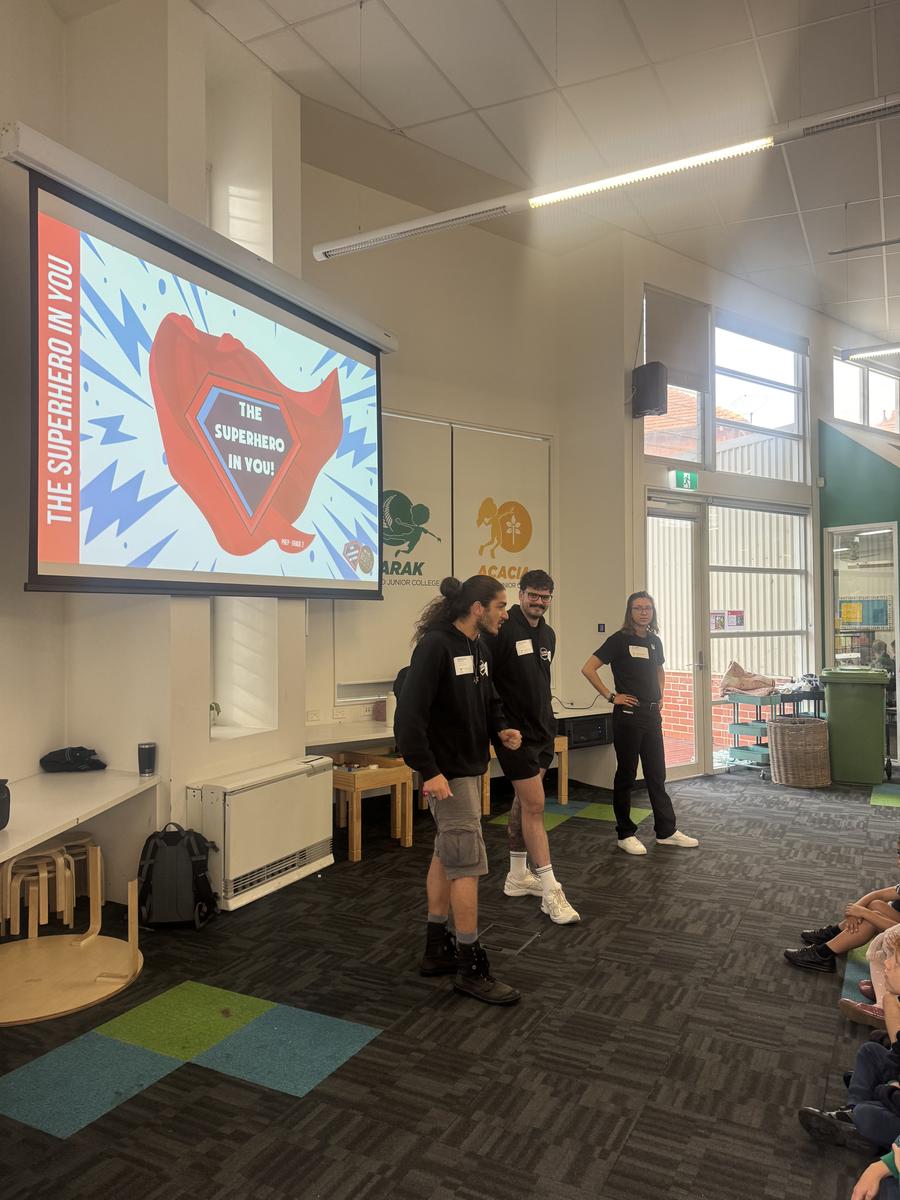Classroom connection
What's happening in the classrooms?

Classroom connection
What's happening in the classrooms?
Maths Extension in Grade Two
At CJC we have an extensive extension program. Currently we have groups from Year One to Year Six taking part in maths extension lessons.
The purpose of these small group sessions is to challenge and ‘stretch’ the thinking of students who are already capable mathematicians. It is important for these learners to experience struggle so that they learn to persevere and ‘dig deeper’.
We are super proud of how these students have coped with working on problems that require several attempts, collaborating with partners and sometimes reaching a dead end which requires them to try a different approach. They have not given up!
Here’s what a few of them had to say about their experience of maths extension so far this year:
Abigail 2A
I just love maths! It’s fun and it can challenge my brain. The hardest thing we have done so far was when we had to use different numbers to make 15, then make them fit into a column, row or diagonal. And our partner was working to block us!
Jordan 2A
I get more smart by doing harder maths. It’s fun for me. I’m proud that I got to be a coach this week to help someone else.
Oscar 2A
I like it when we do problem solving. It’s because it’s tricky and I like answering word questions because they are really hard.
Will 2A
I like extension maths because sometimes it feels like I’m doing what I want to do. Sometimes it’s hard and sometimes it feels like a game.
Benjamin 2A
In extension maths I liked it when we had to see how many towers we could make from four colours. Every tower had to be different to the others. I liked learning about a mathematical game with an attacker and a defender.
Theo 2C
We get to do fun stuff. I like maths and I especially like doing calculations.
Clark 2C
I like extension maths because when we are doing things in a group it’s better. You learn from each other.
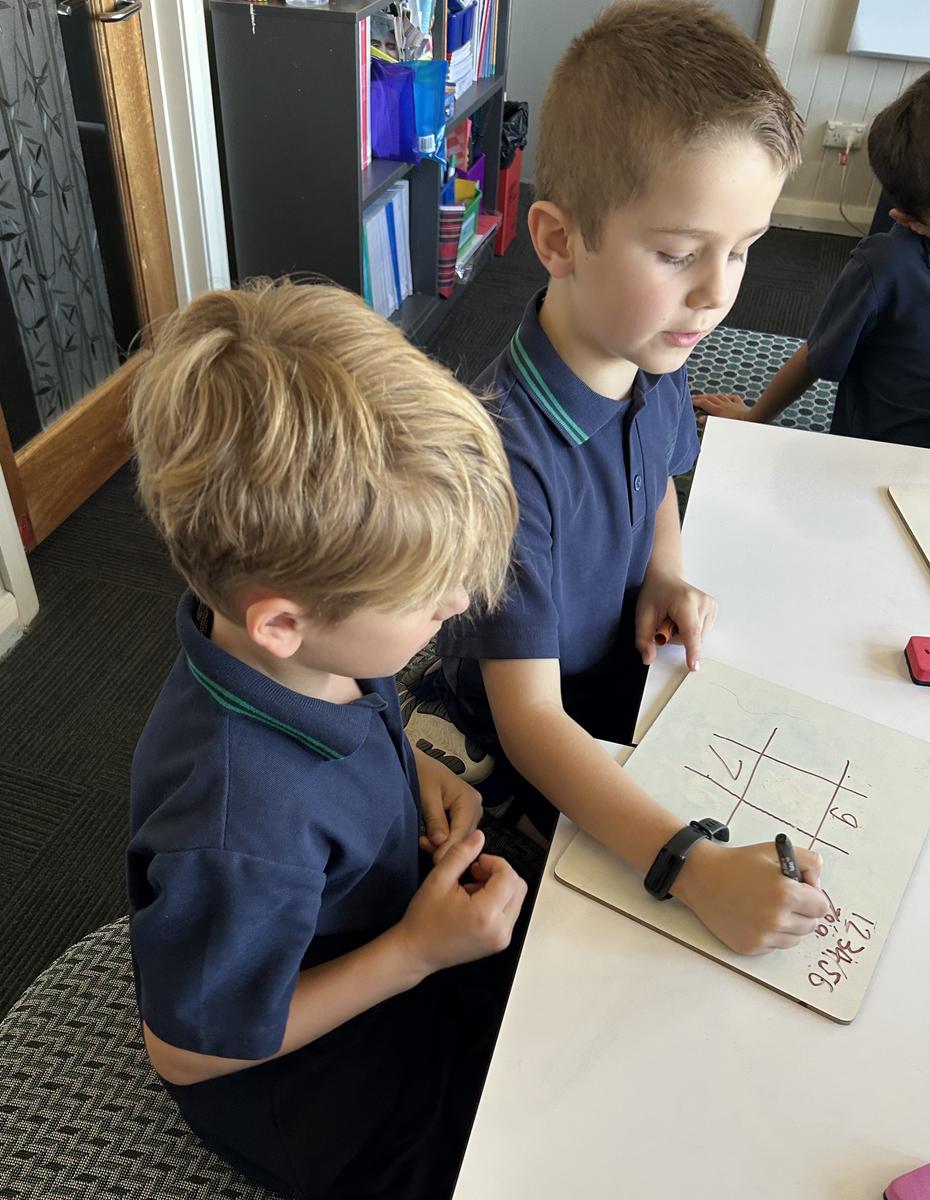
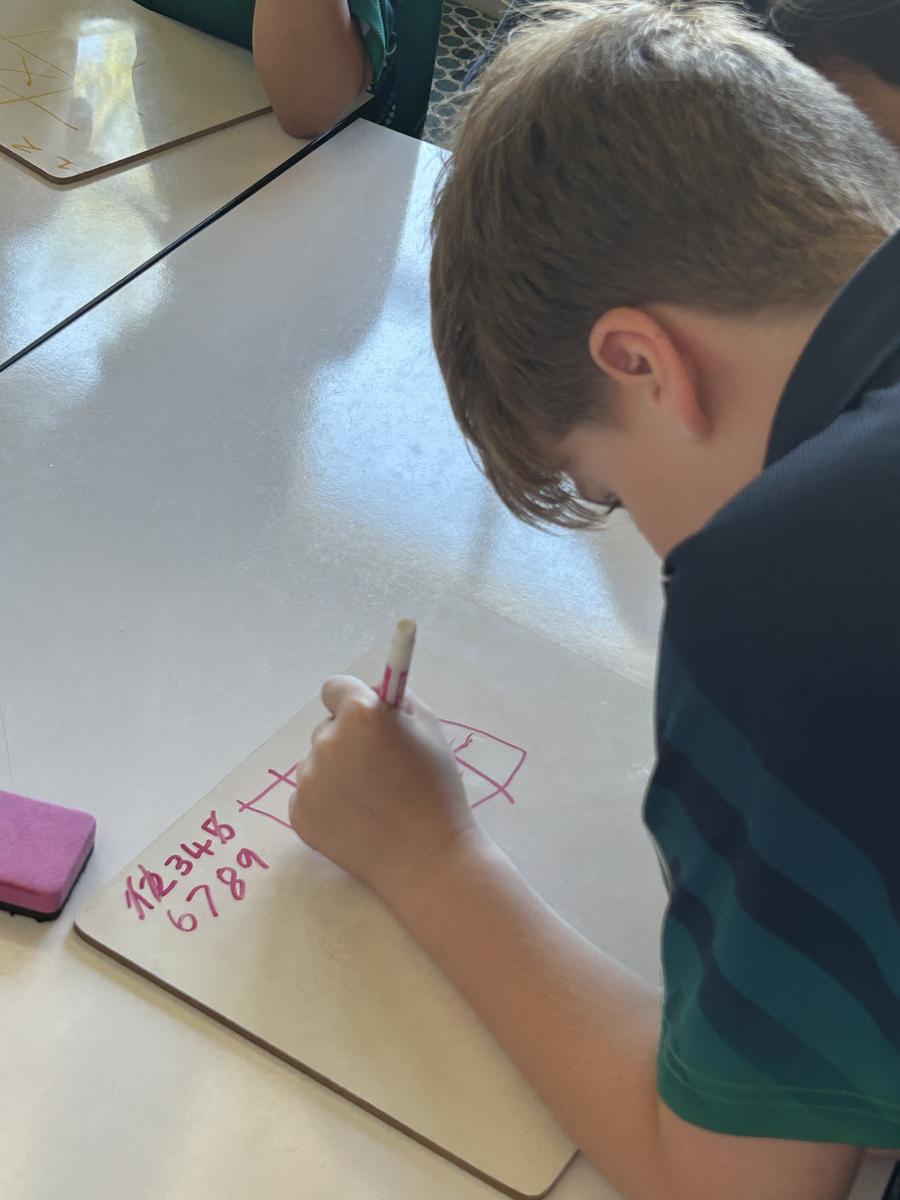
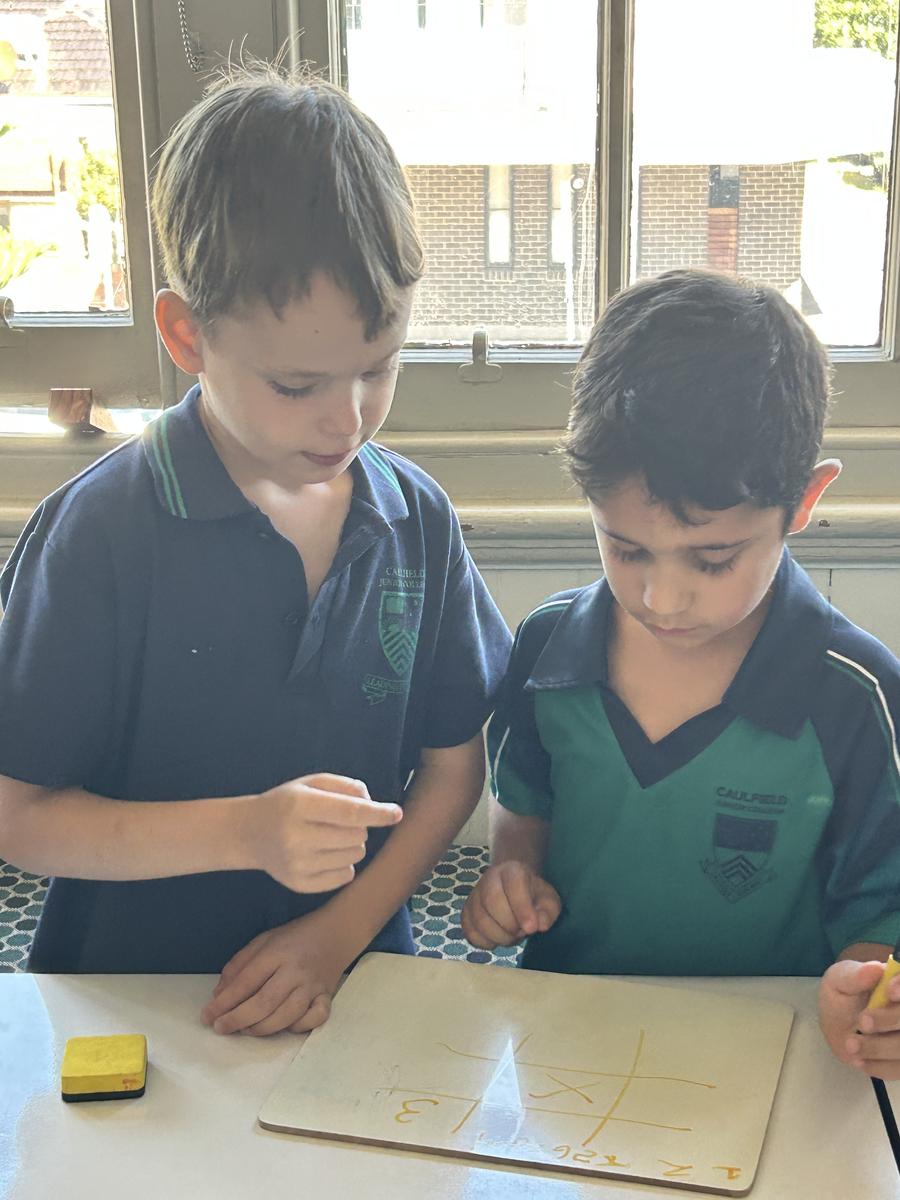
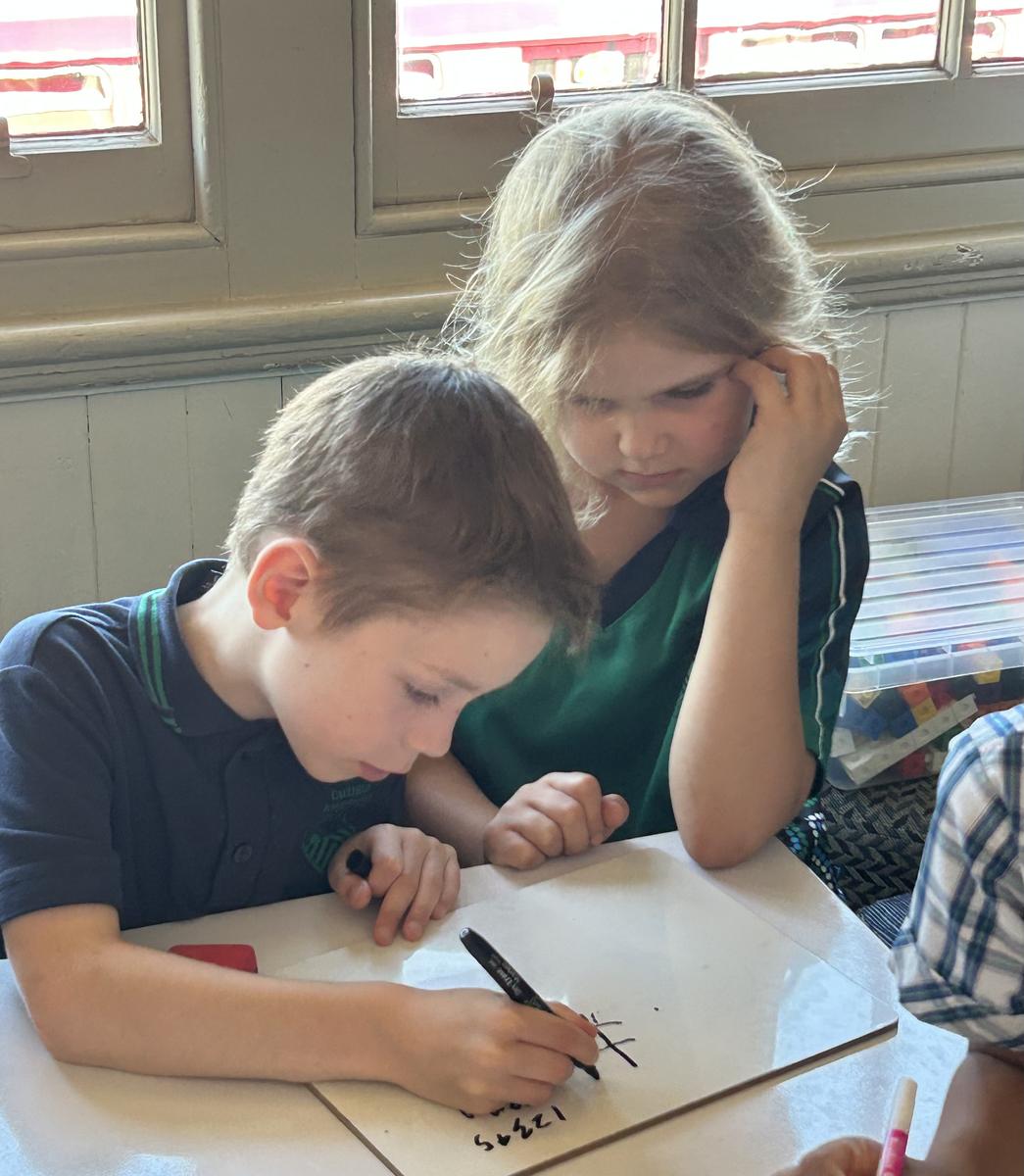
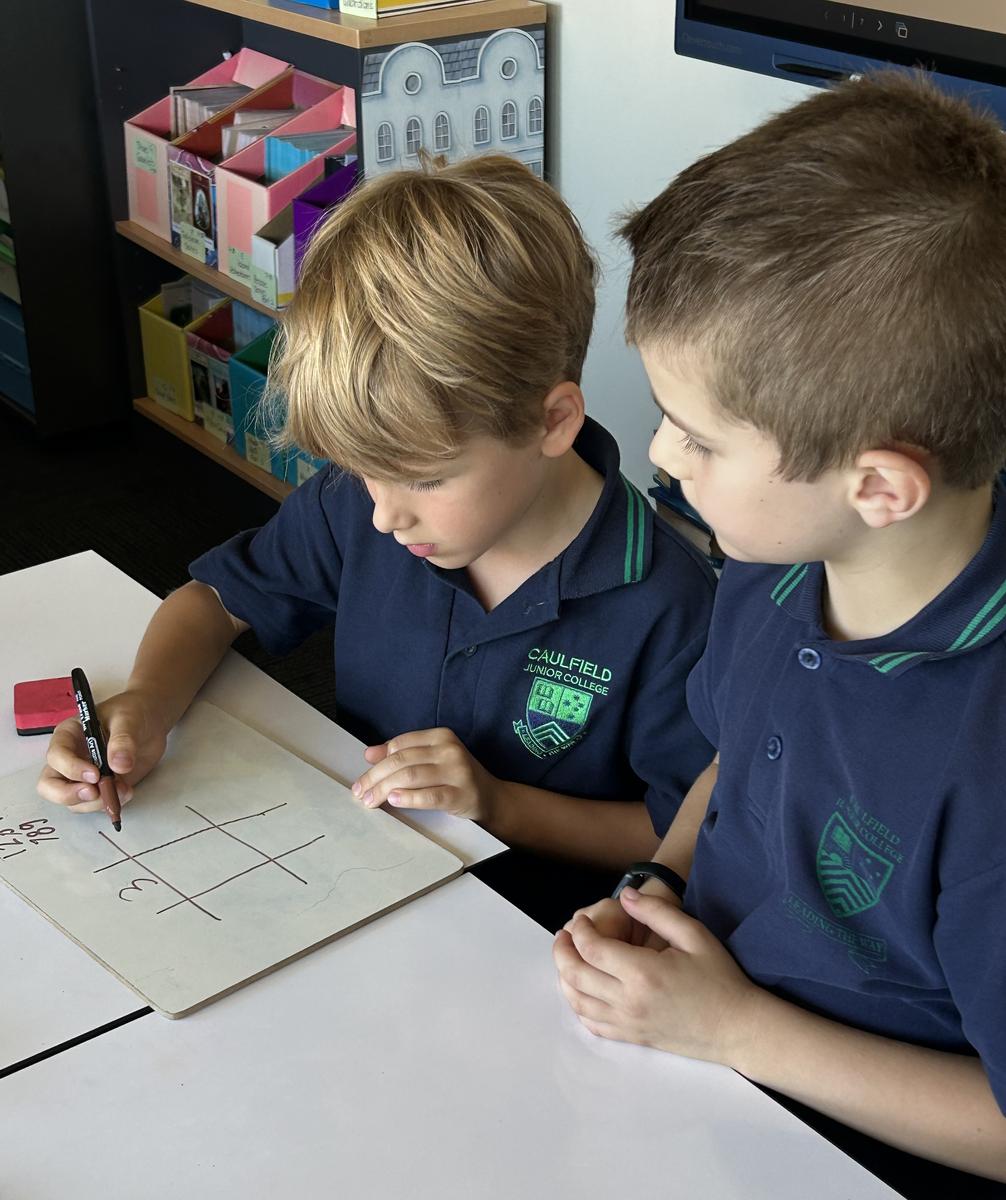
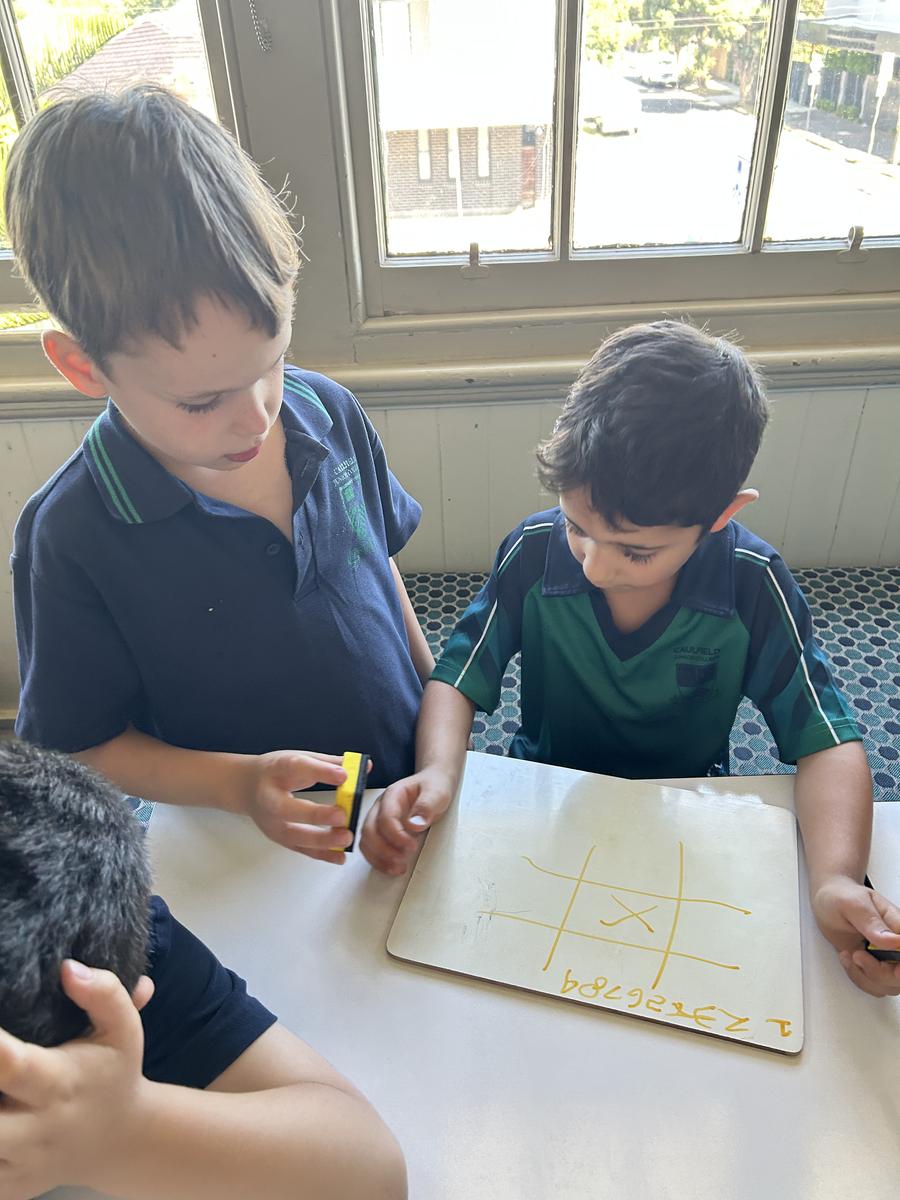
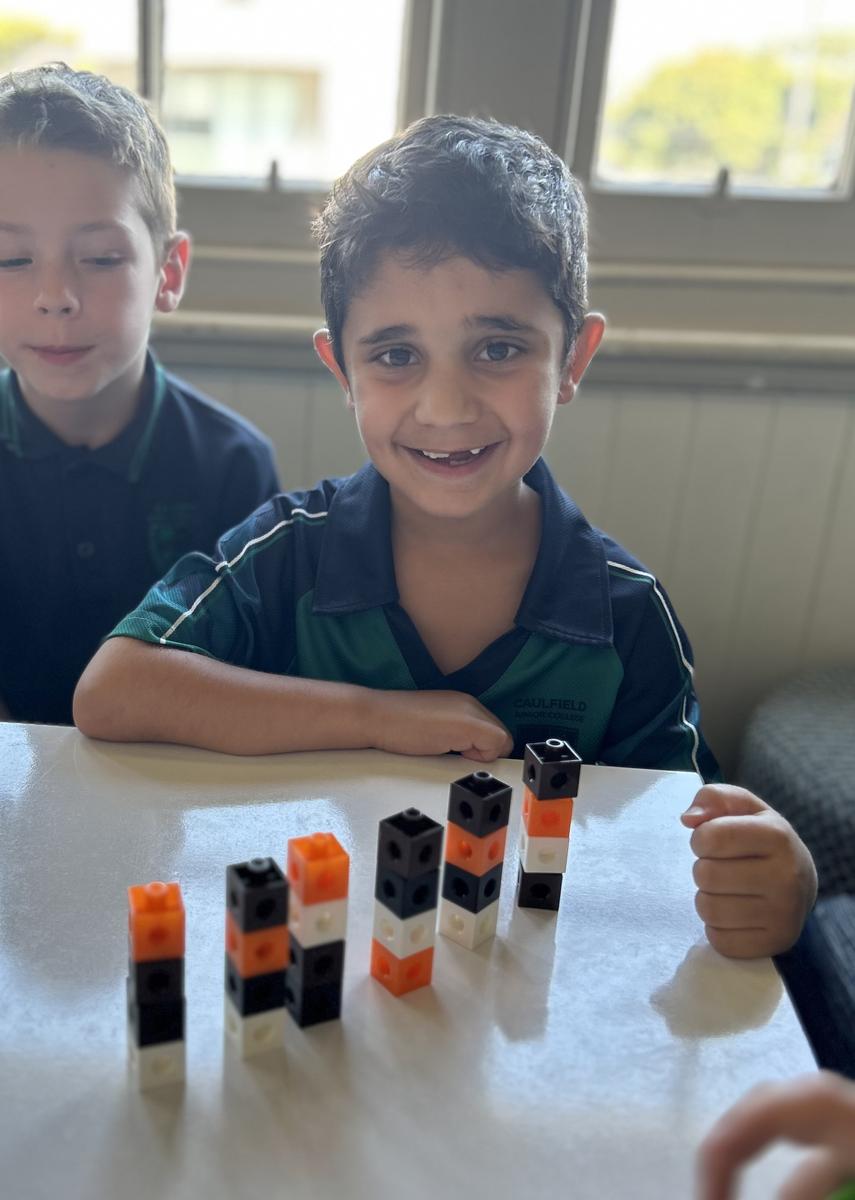
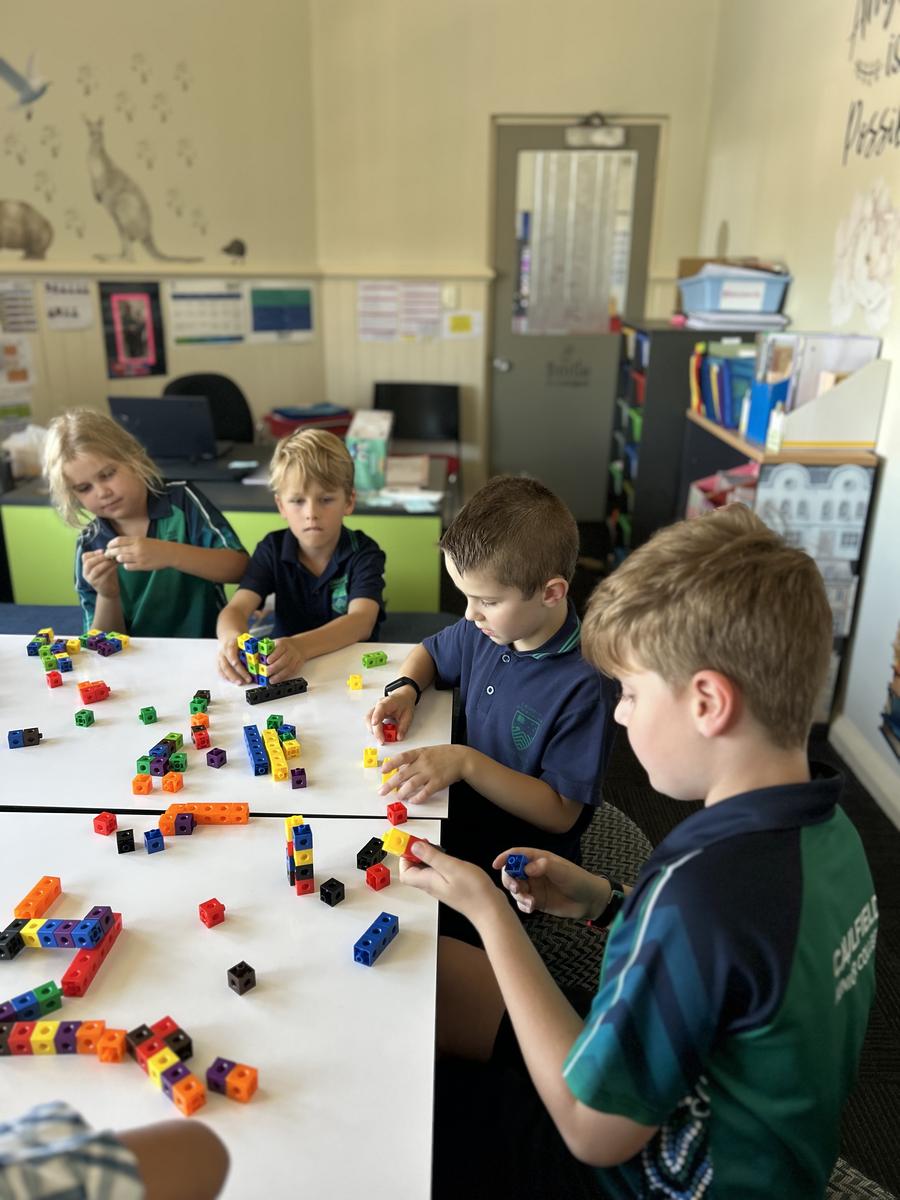
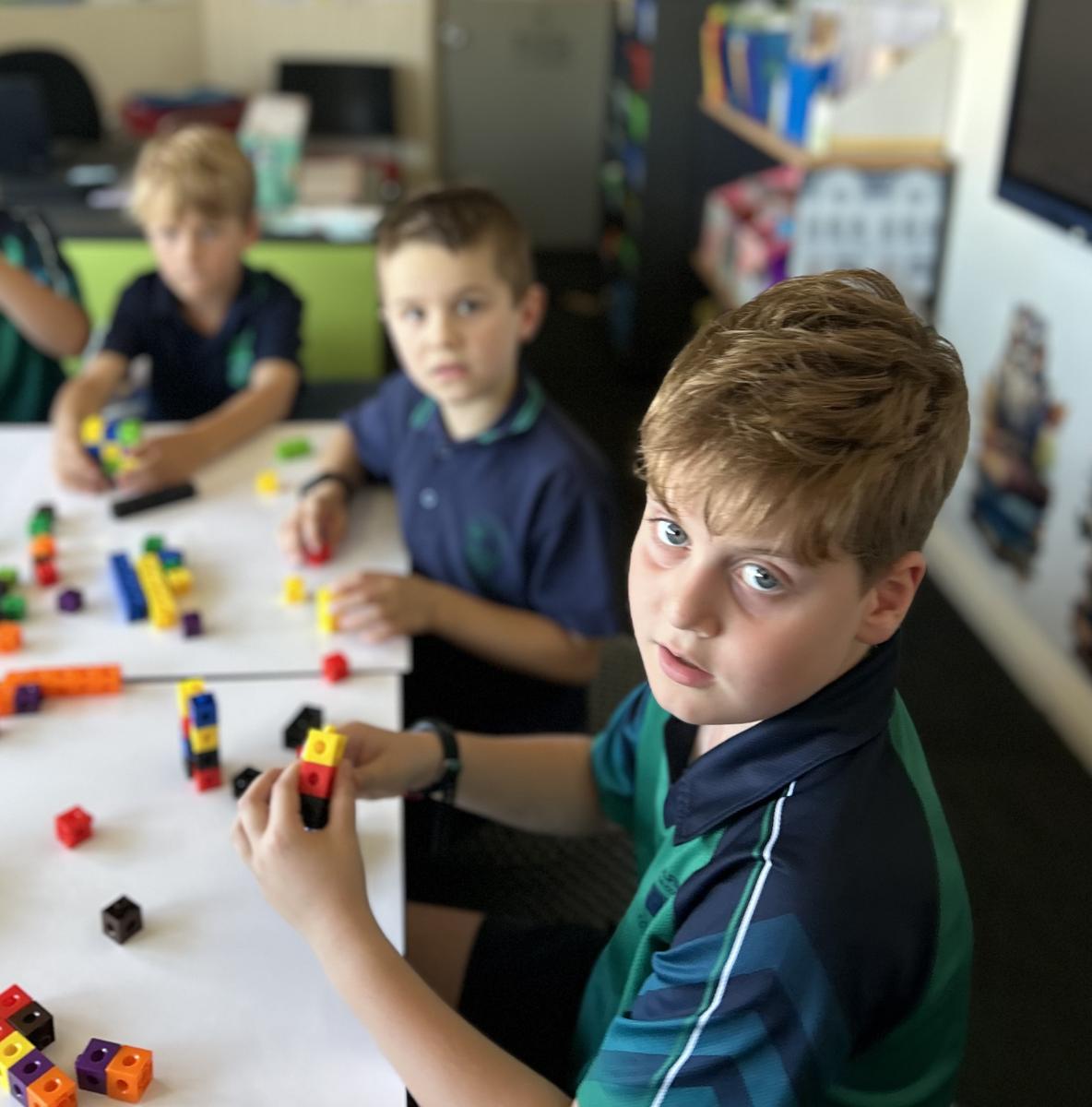
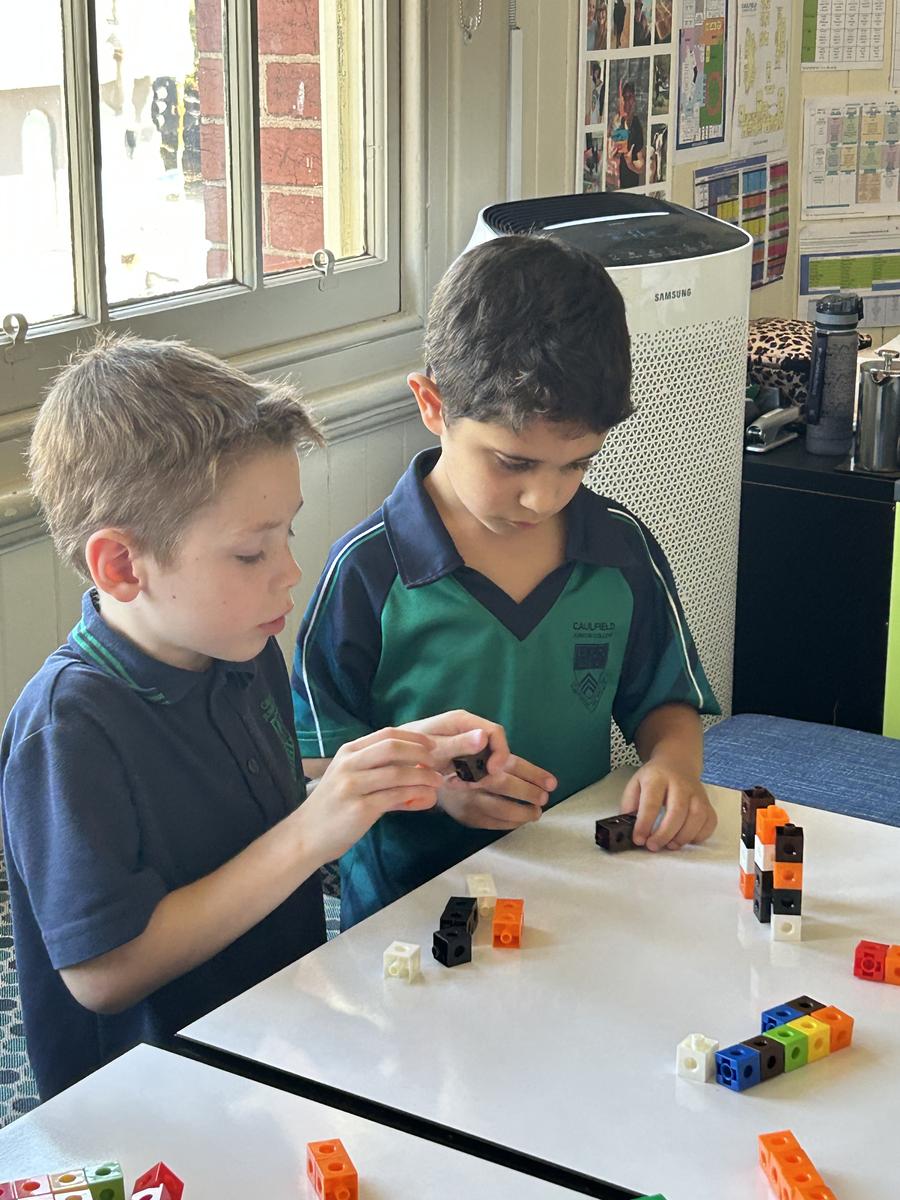
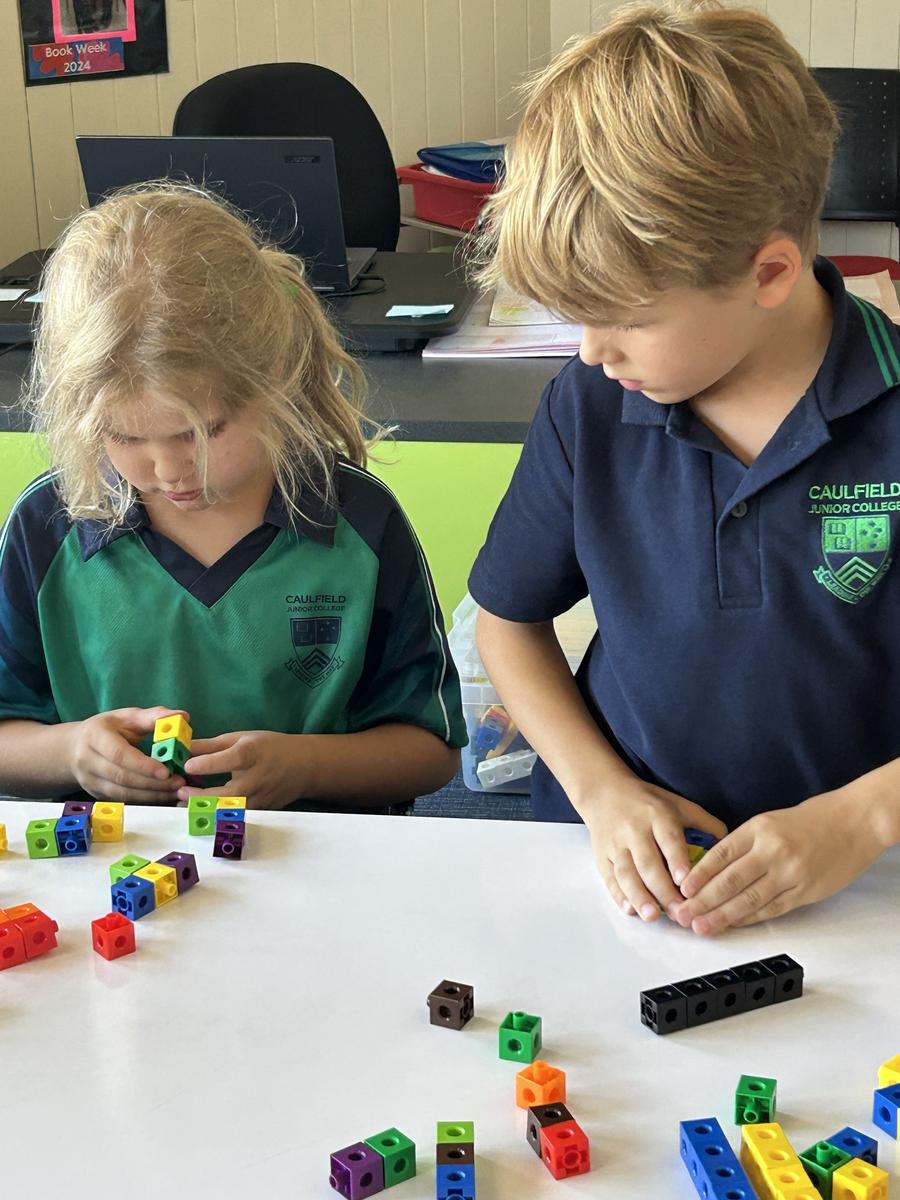
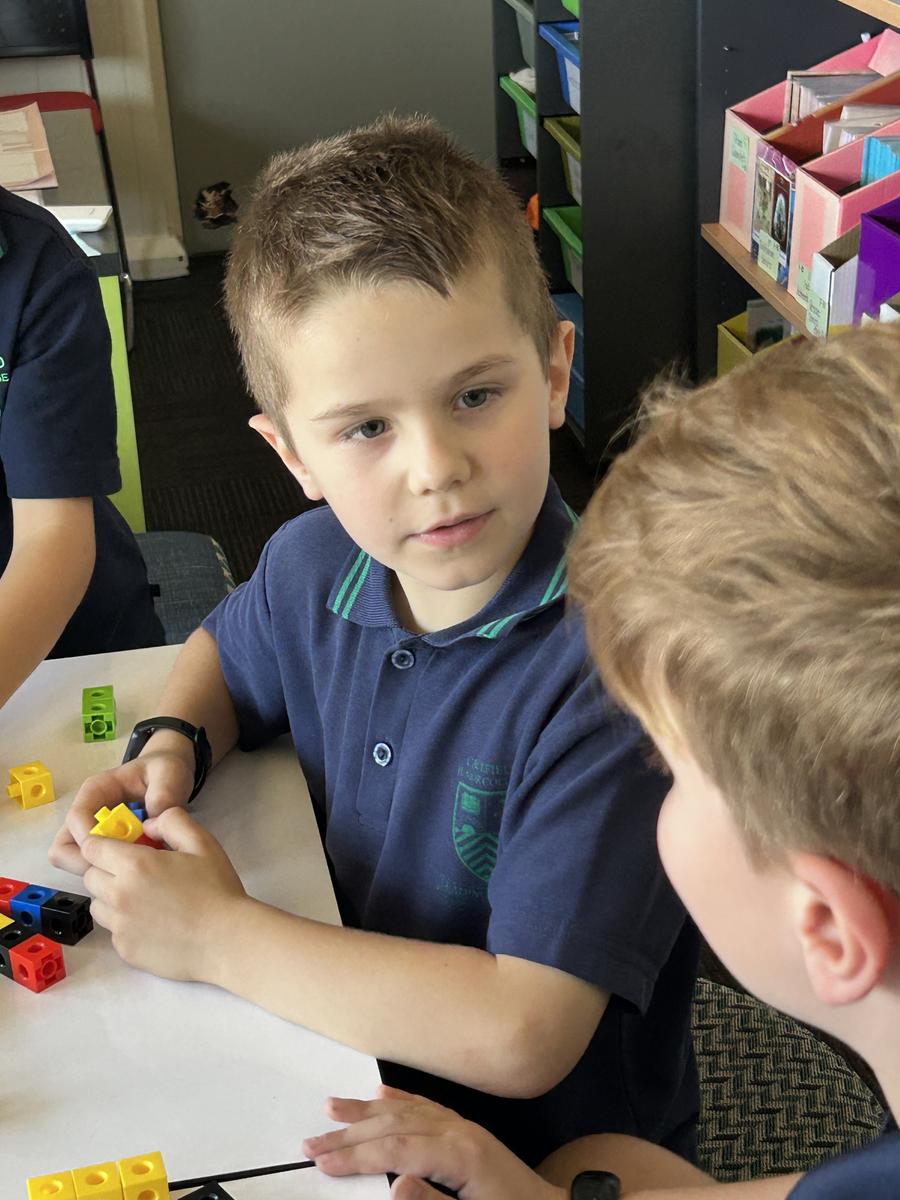
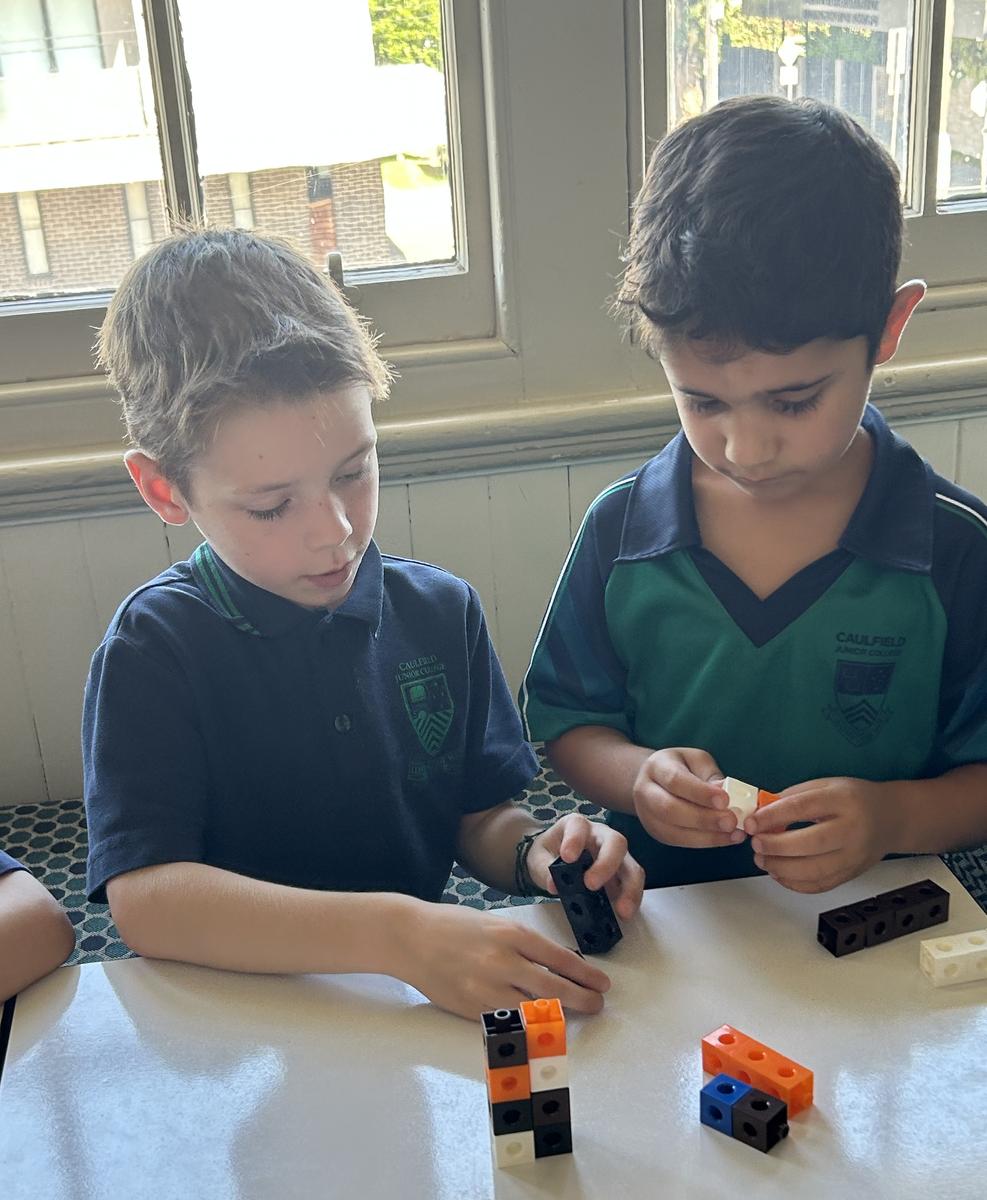
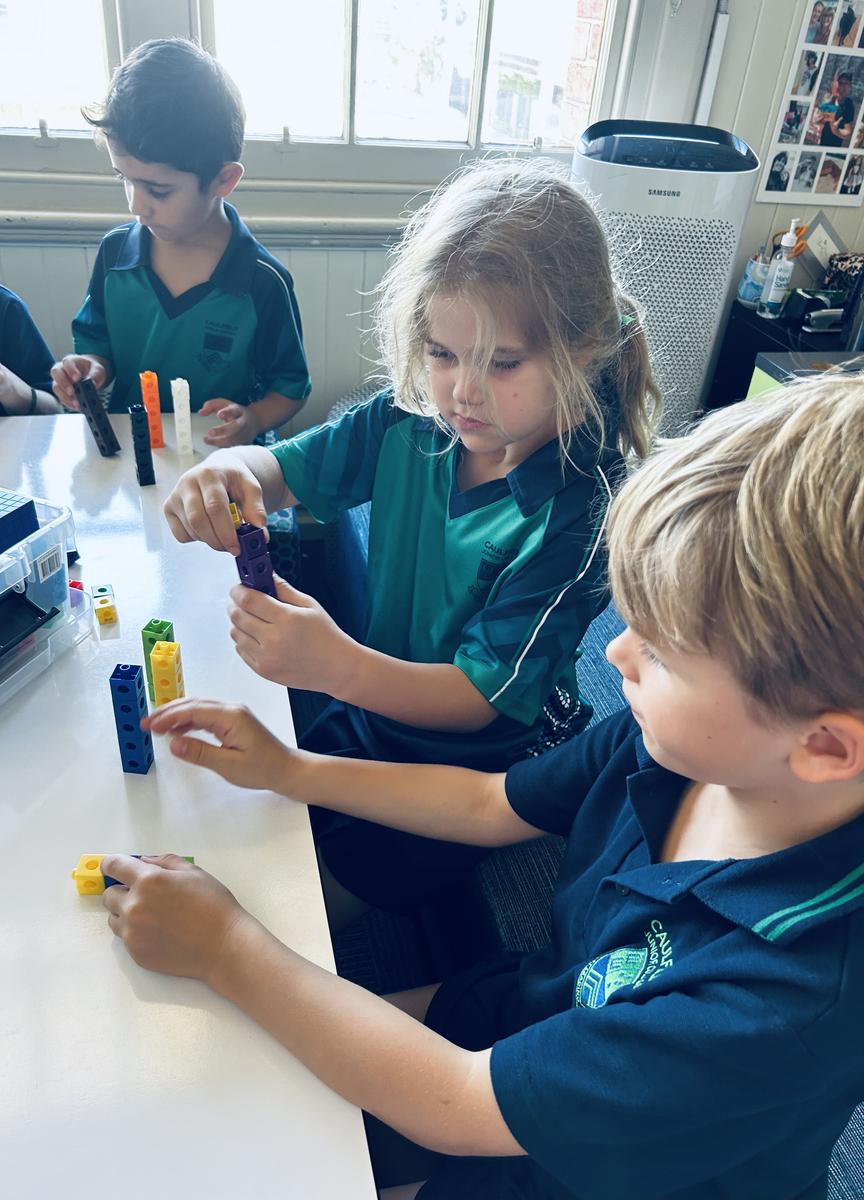














We have had a positive start to our MSL (Multisensory Structured Language) sessions in Years 1, 2 and 3.
Each lesson includes phonemic awareness drills to support the students in making connections between letters and their sounds.
We cover the following:
Alphabetic Principle: what sound goes with which letter or group of letters.
Sound packs to promote instant recall
Letter formation, pencil grip, and sitting square to the table with our feet on the floor. These are all important to ensure students can form letters accurately and neatly.
New sound/spelling rules
Reading and writing (decode/encode) words that align with the letters/sounds/rules we know or are learning.
Sometimes we include a worksheet to reinforce what we have learned or we might do this via a fun game.
For the younger students, we might play Go-Fish alphabet if we don’t know all our letters yet. For other students we might play card games that reinforce the sound/spelling rule we have been working on. We also play “roll and read”, where a student rolls a dice and then reads words from a corresponding column of words. T
Our students love attending these sessions - and of course they love the games!
If you would like a little more information on the MSL program, please see below which is from the Department of Education websitel.
MULTISENSORY STRUCTURED LANGUAGE
“MSL instruction is suitable for all students regardless of the cause who are struggling to master written print.” Institute for Multisensory Structured Language Education.
“Multisensory Structured Language (MSL) includes the principles of scientific reading research but goes one step further with addition of the multisensory component. MSL is an approach offering a strong pedagogy strengthened with an understanding and application of the MSL principles. MSL is not a program that a teacher must follow and a student ‘fit into’. MSL is flexible in delivery and differs to many other traditional reading and spelling programs. MSL offers direct and explicit instruction delivered in a structured and systematic way. MSL has a clear focus on what to teach and how to teach it “ - Australian Dyslexia Association.
“Students particularly those with dyslexia need to be taught, slowly and thoroughly, the basic elements of their language—the sounds and the letters which represent them—and how to put these together and take them apart. They have to have lots of practice in having their writing hands, eyes, ears, and voices working together for conscious organization and retention of their learning.” Institute for Multisensory Structured Language Education.
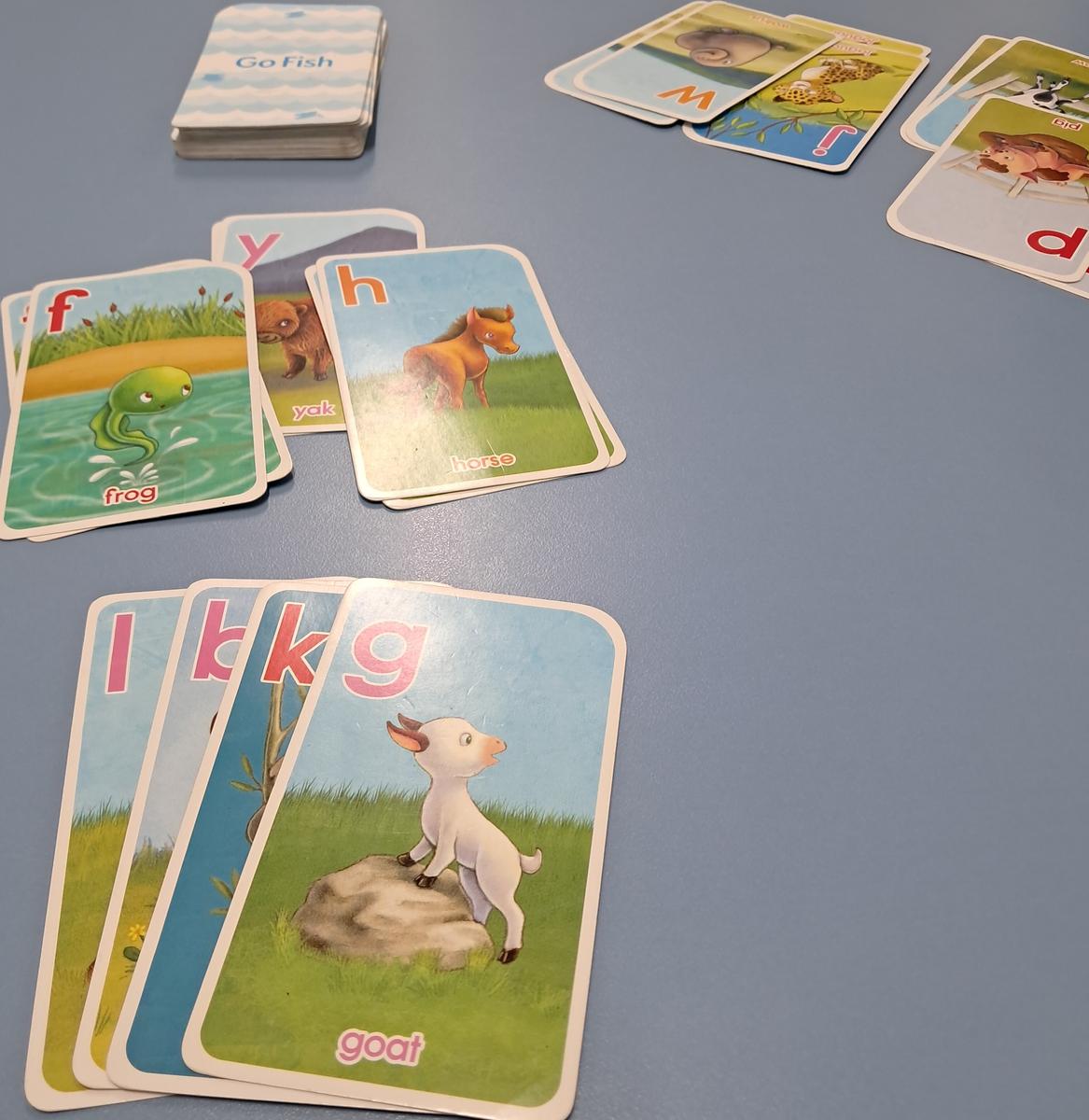
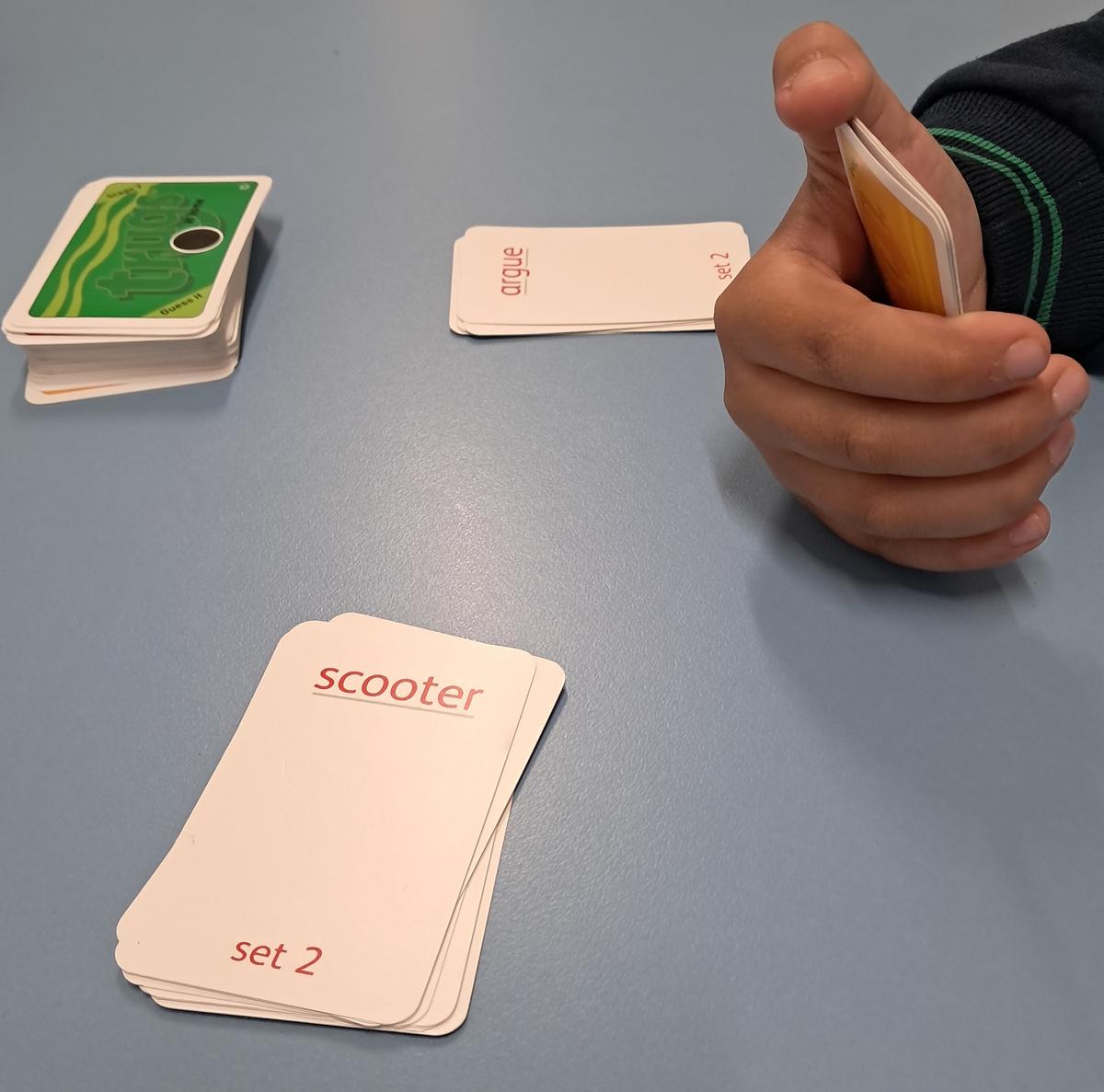
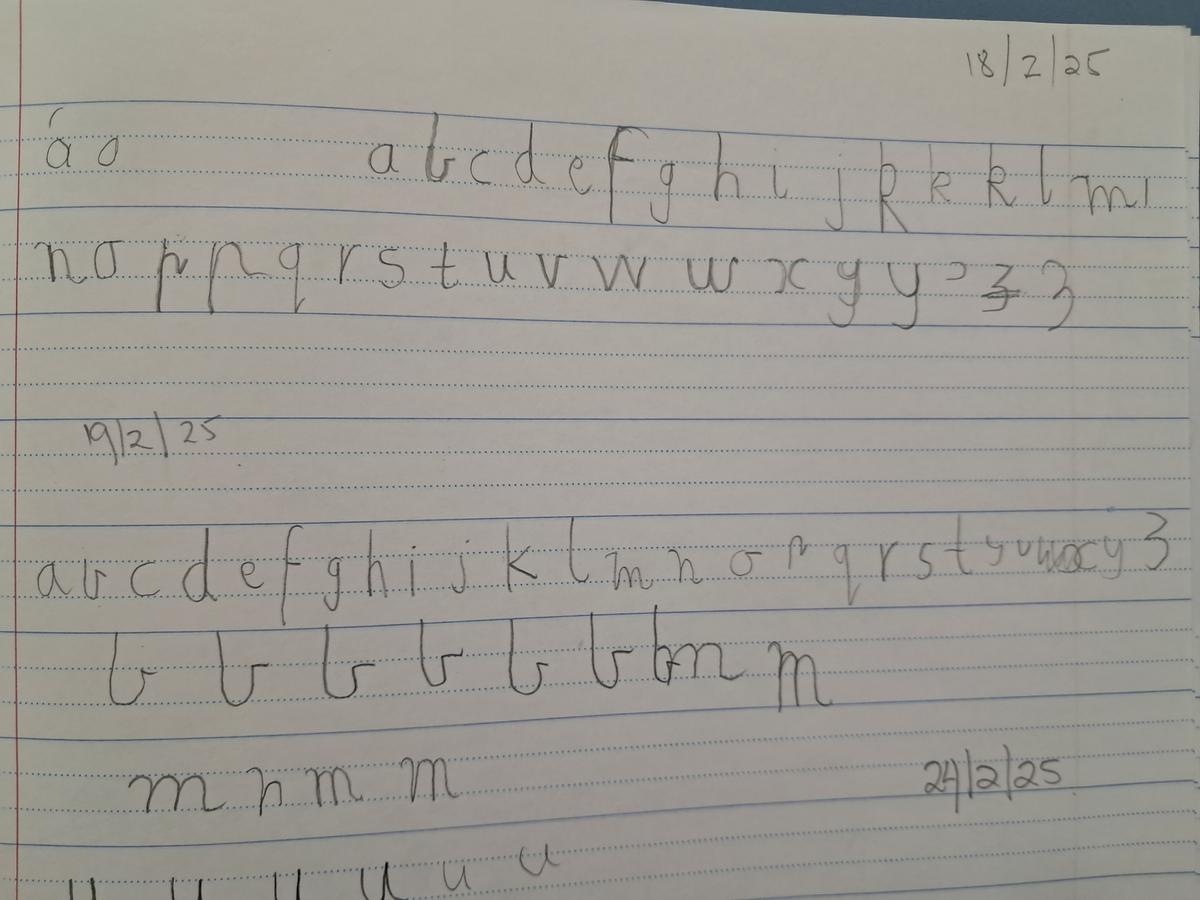



The cohort enjoyed learning about their inner Superhero in this action packed fun incursion today.
The Program focused on:
